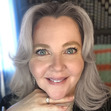C.J. Ives Lopez's Blog, page 5
July 12, 2023
Compositions on Compassion and Other Emotions
I had the privilege of delving into the mesmerizing pages of Bob McNeil’s literary masterpiece, Compositions on Compassion and Other Emotions, and I can confidently say that this book is a treasure that deserves a special place on every reader’s bookshelf. Prepare to be captivated by McNeil’s profound words and eloquent expressions that will resonate with your soul.
This remarkable book transcends mere storytelling; it becomes an essential companion for those seeking solace and inspiration in life’s journey. Whenever you find yourself in need of profound hope or searching for the perfect words to articulate the deepest corners of your being, this book will be your guiding light. It holds the power to stir your emotions and evoke a sense of connection, unlike anything you’ve experienced before.
Bob McNeil’s voice in this work stands tall among literary giants, forging his own path and leaving an indelible mark on the literary landscape. Each passage, including my personal favorite, “My Heart’s Unthwarted Sentiment,” takes you on a heartfelt journey through time, evoking nostalgia and painting vivid imagery that will transport you to a world that feels both lost and deeply hidden within us all.
The forward of this book is a beautiful tribute to a bygone era, offering a breath of fresh air and a nostalgic embrace. It harkens back to a time of innocence and comfort, a world that may seem distant but remains alive within our collective memory. In a world where word choices often fall short and connections grow scarce, Bob McNeil shines as a beacon of authentic humanity, seamlessly weaving together the threads that bind us all.
Prepare to be moved, inspired, and forever changed by Bob McNeil’s extraordinary work. Dive into this enchanting journey and rediscover the power of words to touch our hearts and souls in profound ways.
This book is set to be released in August 2023 by Flexible Press and proceeds will be going to National Alliance to End Homelessness
Want to be on our blog? It’s easy. Sign up now.
You can check out our magazine or write an article, we publish quarterly on Amazon, and it’s free for non-advertisers.
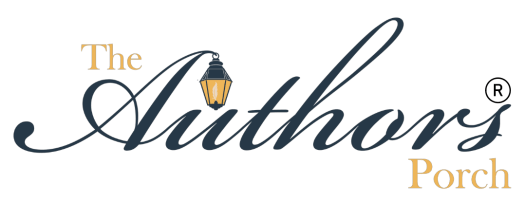
The post Compositions on Compassion and Other Emotions appeared first on .
July 11, 2023
Meet Tommy Rushworth
Today, we are conducting a character interview with author Paul Rushworth Brown, who writes historical fiction, and we wanted to get to know more about one of his main characters, Tommy. Tommy is a rough-around-the-edges character, so hold onto your seat. Remember, he is from the past, so his language and mannerisms may be different from those of people in the 20th century.
Paul Rushworth-Brown was born in Maidstone, Kent, England, in 1962. He spent time in a foster home in Manchester before emigrating to Canada with his mother in 1972. He spent his teenage years living and attending school in Toronto, Ontario, where he also played professional soccer in the Canadian National Soccer League. In 1982, he emigrated to Australia to spend time with his father, Jimmy Brown, who moved there from Yorkshire in the mid-fifties. Paul was educated at Charles Sturt University in New South Wales, Australia, and became a writer in 2015 after his self-published novel ‘Skulduggery’ was picked up by Shawline Publishing. Paul’s novels are authentic and gritty, with twists and turns the reader won’t see coming. He paints a realistic image of how peasants would have lived in the 16th and 17th centuries. However, that is only the backdrop to suspenseful and mysterious stories with romantic tones. His novel ‘Red Winter Journey’ has been nominated for the NSW Premier’s Literary Awards (Christina Stead Prize for fiction). His new novel ‘Dream of Courage’ will be released in November 2023. Paul has been a guest on ABC, BBC, America Tonight with Kate Delaney and regularly features on the Witty Writers Show in the US. The US Times said, ‘Modern writers usually don’t know what it was like to live in the past, but Rushworth-Brown does this with great skill in his accomplished, atmospheric and thoughtful novels.’
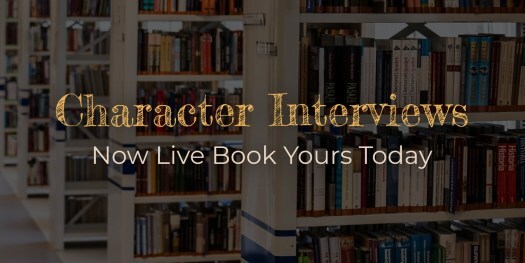 https://theauthorsporch.com/character-interview/Character InterviewWhat is your full name? Do you have a nickname (if so, who calls you this)?
https://theauthorsporch.com/character-interview/Character InterviewWhat is your full name? Do you have a nickname (if so, who calls you this)?Tommy Rushworth
Where were you born?Haworth, Yorkshire
 https://www.paulrushworthbrownskulduggerywinterofred.com/Where do you live?
https://www.paulrushworthbrownskulduggerywinterofred.com/Where do you live? In a one-room cruck cottage. On the moors of Yorkshire just outside the village of Haworth. A cold desolate place.
What do you do for a living?Weaver and spinner of wool/Farmer fer Lord Birkhead
 https://www.paulrushworthbrownskulduggerywinterofred.com/What is your most outstanding achievement?
https://www.paulrushworthbrownskulduggerywinterofred.com/What is your most outstanding achievement?Gettin’ married to Isabel and havin’ Will, me son.
What’s the most embarrassing thing that’s happened to you? Don’t be shy. We love the inside scoop.I had dysentery and shit meself then tried to escape.
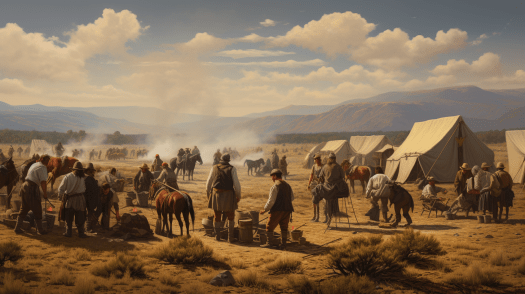 https://www.paulrushworthbrownskulduggerywinterofred.com/ If we searched your name on Google, would we find any dirty laundry? Do you have hidden secrets?
https://www.paulrushworthbrownskulduggerywinterofred.com/ If we searched your name on Google, would we find any dirty laundry? Do you have hidden secrets?Broke into a house and stole a cow and some food. It was my fault the reeve’s brother died
What is your biggest secret? Can you tell us?All is not as it seems
 https://www.paulrushworthbrownskulduggerywinterofred.com/Do they have any bad habits? Everyone has them. You can share with us. We’ll still love you.
https://www.paulrushworthbrownskulduggerywinterofred.com/Do they have any bad habits? Everyone has them. You can share with us. We’ll still love you.I stutter a little bit when I’m nervous
What’s your educational background, if you had any formal training?Only what me Da’ and Uncle William showed me
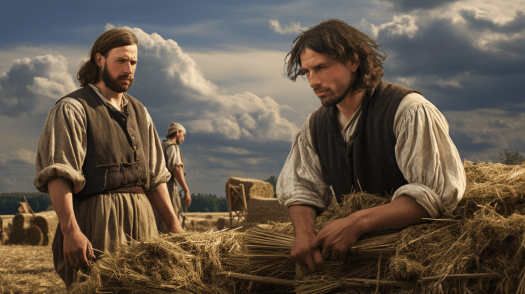 https://www.paulrushworthbrownskulduggerywinterofred.com/What’s your favorite movie? If you watch movies in your world, if not? What’s your favorite thing to do?
https://www.paulrushworthbrownskulduggerywinterofred.com/What’s your favorite movie? If you watch movies in your world, if not? What’s your favorite thing to do?Go into Haworth to the Kings Arms with Uncle William and Da. Ma doesn’t like me goin’, though.
What’s your favorite food?Ma’s bread
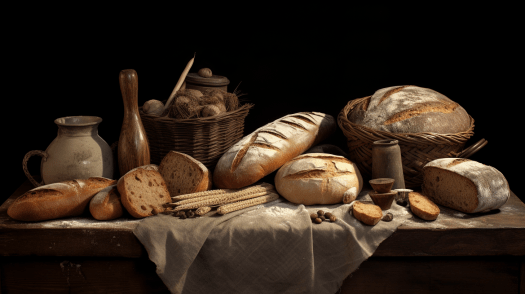 https://www.paulrushworthbrownskulduggerywinterofred.com/What is their most treasured possession?
https://www.paulrushworthbrownskulduggerywinterofred.com/What is their most treasured possession?A musket ball that a musketeer gave me. Sill got it.
Which living person would you most want to meet? Which dead person?Oliver Cromwell to tell him he’s a bastard, good Queen Bess
 https://www.paulrushworthbrownskulduggerywinterofred.com/Who do you consider your closest friend or best friend?
https://www.paulrushworthbrownskulduggerywinterofred.com/Who do you consider your closest friend or best friend?James we went through a lot together
Do you have a romantic partner? Spill the beans.Isabel, me wife I feel sorry fer what I put her through
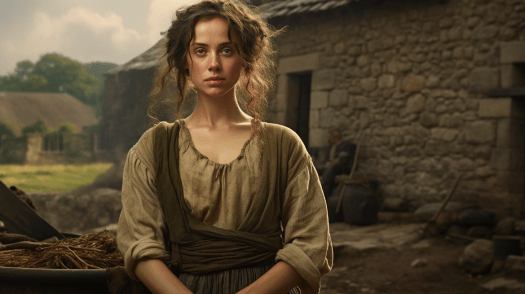 https://www.paulrushworthbrownskulduggerywinterofred.com/Which family members are you close with? And why
https://www.paulrushworthbrownskulduggerywinterofred.com/Which family members are you close with? And whyUncle William and me grand pa John Hargreaves
Who do you trust?James, with me life
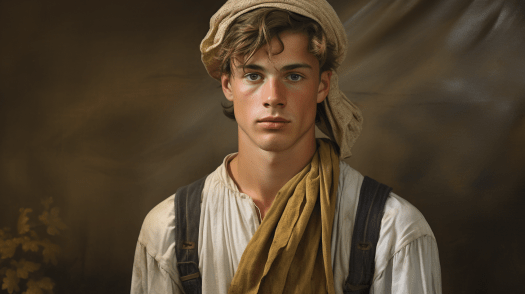 https://www.paulrushworthbrownskulduggerywinterofred.com/Who would you turn to for help if you were in trouble?
https://www.paulrushworthbrownskulduggerywinterofred.com/Who would you turn to for help if you were in trouble?Me Da, Uncle William, John Pigshells
What is the relationship like with your parents?Very good ‘cept they still treat me like a child especially Ma
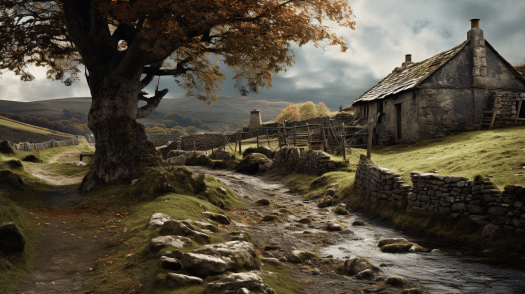 https://www.paulrushworthbrownskulduggerywinterofred.com/If you had to pick one, what would your spirit animal be and why?
https://www.paulrushworthbrownskulduggerywinterofred.com/If you had to pick one, what would your spirit animal be and why?English Mastiff ’cause they’re loyal and fearless
What are your biggest pet peeves?Bloody guard duty and slops in the ale
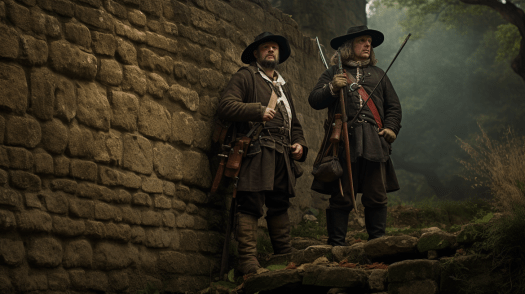 https://www.paulrushworthbrownskulduggerywinterofred.com/Do you consider yourself an introvert or an extrovert?
https://www.paulrushworthbrownskulduggerywinterofred.com/Do you consider yourself an introvert or an extrovert?Introvert was always taught when I was younger, that children should be seen and not ‘eard
What is your greatest fear? What keeps them up at night?Bein’ arrested by Sergeant Walker again, bein’ arrested by Sergeant Walker again. I still ‘ave nightmares.
 https://www.paulrushworthbrownskulduggerywinterofred.com/Are you a glass-half-full or glass-half-empty kind of person?
https://www.paulrushworthbrownskulduggerywinterofred.com/Are you a glass-half-full or glass-half-empty kind of person?Glass half full I had to be.
How do you usually style your hair?It style’s itself
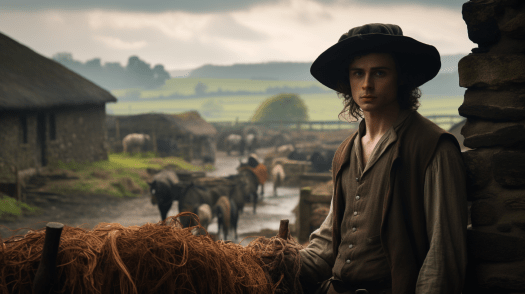 https://www.paulrushworthbrownskulduggerywinterofred.com/What kind of clothing do you wear on a casual day?
https://www.paulrushworthbrownskulduggerywinterofred.com/What kind of clothing do you wear on a casual day?Only got two sets a’ clothin’ one I wear all the time and one fer church on Sunday. Dark brown sleeveless jerkin with a hood, dirty grey tunic, dark brown hose, wollen foot coverings tied around the lower leg with leather strappin’
What’s your nationality?I was born and bred on the moors, that’s all I know
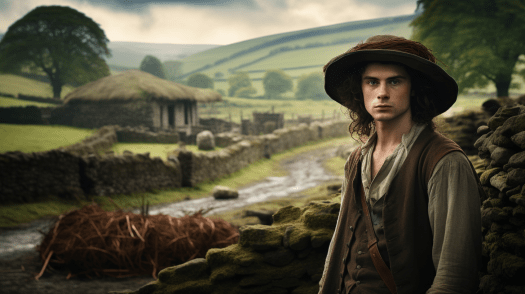 https://www.paulrushworthbrownskulduggerywinterofred.com/Do you have any birthmarks?
https://www.paulrushworthbrownskulduggerywinterofred.com/Do you have any birthmarks?No, got a scar on my forehead from playin’ ball fer West’ards
What are you obsessed with?Isabel and me son Will
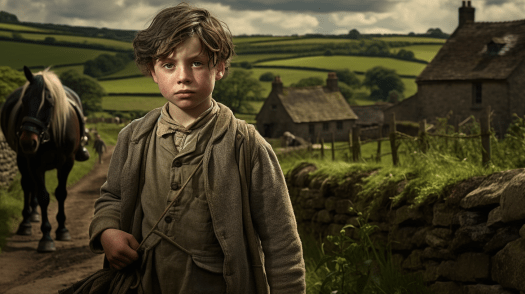 https://www.paulrushworthbrownskulduggerywinterofred.com/What is the best thing that ever happened to you?
https://www.paulrushworthbrownskulduggerywinterofred.com/What is the best thing that ever happened to you?Marryin’ Isabel and me son Will bein’ born
How have Past/ present relationships affected you?Had to grow up fast
 https://www.paulrushworthbrownskulduggerywinterofred.com/What is the one word you would use to define yourself and why?
https://www.paulrushworthbrownskulduggerywinterofred.com/What is the one word you would use to define yourself and why?Stubborn like me Da’
Do you have any siblings? If you do, what are/were they like?Two sisters Morwen and Mirth. A couple of other siblings died of whooping cough when they were babies.
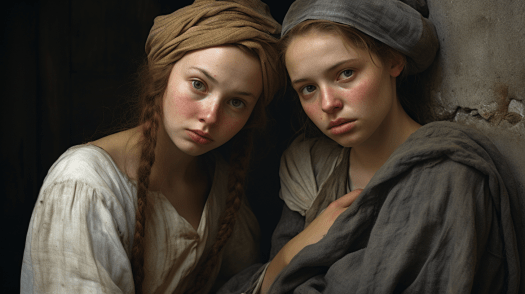 https://www.paulrushworthbrownskulduggerywinterofred.com/To which social class do you belong, if there are social classes in your world?
https://www.paulrushworthbrownskulduggerywinterofred.com/To which social class do you belong, if there are social classes in your world?They call us ‘copyholders’ because we ‘ave to turn land fer Lord Birkhead
Do you have a motto? If so, what is it?Chin up
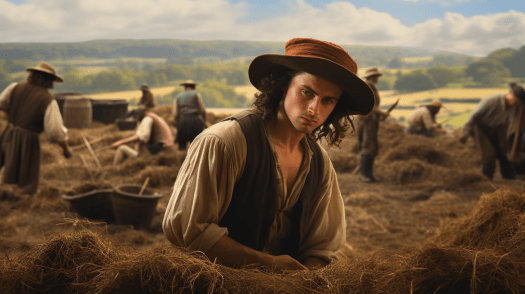 https://www.paulrushworthbrownskulduggerywinterofred.com/What kind of distinguishing facial features do you have?
https://www.paulrushworthbrownskulduggerywinterofred.com/What kind of distinguishing facial features do you have?Told ya’ before, a bloody scar
Do you have any physical traits that stand out (such as scars, birthmarks, tattoos, etc.)? If you have scars, how did you get them? If you have tattoos, why did you get them, and what meaning do they have to you?I’m growin’ so me Jerkin is gettin’ too tight fer me
 https://www.paulrushworthbrownskulduggerywinterofred.com/Which words or phrases do you most overuse?
https://www.paulrushworthbrownskulduggerywinterofred.com/Which words or phrases do you most overuse?Bloody
Where did you learn most of your skills and other abilities?From me Da’ and as a Pikeman in the Parliamentary Army
 https://www.paulrushworthbrownskulduggerywinterofred.com/Did you have any role models? If so, describe them and why they were your role models.
https://www.paulrushworthbrownskulduggerywinterofred.com/Did you have any role models? If so, describe them and why they were your role models.Me Da Thomas ’cause he’s well respected here abouts
What is the evilest thing you have ever done so far?Broke into a cottage and pinched a cow
 https://www.paulrushworthbrownskulduggerywinterofred.com/Do you have a criminal record?
https://www.paulrushworthbrownskulduggerywinterofred.com/Do you have a criminal record?No, but there are two Royalist spies still lookin fer me.
If you could change one thing from your past, what would it be, and why?Not bein’ kidnapped into the Parliamentary army…Bastards!
 https://www.paulrushworthbrownskulduggerywinterofred.com/What is your best memory so far? Why is it so powerful and lasting?
https://www.paulrushworthbrownskulduggerywinterofred.com/What is your best memory so far? Why is it so powerful and lasting?Birth of me son Will cause me Ma and Da was still alive to see him born
Do you trust anyone to protect you? Who, and why?Me Da, Uncle William and Grandpa Hargreaves. They risked their own lives fer me.
 https://www.paulrushworthbrownskulduggerywinterofred.com/Who is the person you despise the most, and why?
https://www.paulrushworthbrownskulduggerywinterofred.com/Who is the person you despise the most, and why?The Steward of the manor ’cause John Pigshells says he’s a bastard, whorin’ thief!
Do you tend to argue with people or avoid conflict?I stick up fer meslf and mine
 https://www.paulrushworthbrownskulduggerywinterofred.com/Do you tend to take on leadership roles in social situations?
https://www.paulrushworthbrownskulduggerywinterofred.com/Do you tend to take on leadership roles in social situations?Didn’t ‘ave a choice
Do you like interacting with large groups of people? Why or why not?Never used to, but goin’ through what I went through toughened me up
 https://www.paulrushworthbrownskulduggerywinterofred.com/If you knew you would die in 24 hours, name three things you would do in the time you had left.
https://www.paulrushworthbrownskulduggerywinterofred.com/If you knew you would die in 24 hours, name three things you would do in the time you had left.I’ve been in that situation. Spend it with me family, if Will was older take ‘im fishin’
Do you believe in heaven or hell?I’ve been ta hell believe me
 https://www.paulrushworthbrownskulduggerywinterofred.com/Are you superstitious?
https://www.paulrushworthbrownskulduggerywinterofred.com/Are you superstitious?Always
What is your zodiac sign?What the bloody ‘ell is that?
 https://www.paulrushworthbrownskulduggerywinterofred.com/Your friends are speaking unfairly about a mutual friend. Do you speak up?
https://www.paulrushworthbrownskulduggerywinterofred.com/Your friends are speaking unfairly about a mutual friend. Do you speak up?Bloody oath
What childhood memory still makes your toes curl?Fallin through the ice on the Bridgehouse Beck
 https://www.paulrushworthbrownskulduggerywinterofred.com/What’s something you quit that you now regret giving up on?
https://www.paulrushworthbrownskulduggerywinterofred.com/What’s something you quit that you now regret giving up on?Don’t play ball anymore cause Ma worries too much
What was the best party you ever went to?Me weddin’ to Isabel
 https://www.paulrushworthbrownskulduggerywinterofred.com/Do you stay up late or wake up early?
https://www.paulrushworthbrownskulduggerywinterofred.com/Do you stay up late or wake up early?Wake up early ‘ave to scare the birds away, get water from the beck two miles away and get the bugs off the barley
What do you do if you can’t sleep?Never ‘ave problems sleepin’ but still ‘ave nightmares ’bout what ‘appened
 https://www.paulrushworthbrownskulduggerywinterofred.com/
https://www.paulrushworthbrownskulduggerywinterofred.com/Who or what do you turn to when you’re upset?
Just get on with it
Can you lie easily?In a pickle
 https://www.paulrushworthbrownskulduggerywinterofred.com/Do you handle rejection well?
https://www.paulrushworthbrownskulduggerywinterofred.com/Do you handle rejection well?Dunno, suppose so.
Have you ever done something illegal?Yes, hasn’t everybody? Sometimes you gotta do somethin’ you’re not proud of.
 https://www.paulrushworthbrownskulduggerywinterofred.com/Are you more likely to ask for permission or forgiveness?
https://www.paulrushworthbrownskulduggerywinterofred.com/Are you more likely to ask for permission or forgiveness?Probably forgiveness at least with Isabel
What terrible thing have you done that you never thought you would do?Wait and see
Follow Paul:https://www.paulrushworthbrownskulduggerywinterofred.com/
Want to be on our blog? It’s easy. Sign up now.
You can check out our magazine or write an article, we publish quarterly on Amazon, and it’s free for non-advertisers.
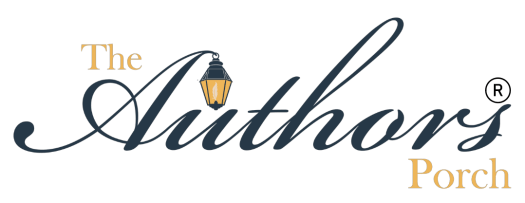
The post Meet Tommy Rushworth appeared first on .
July 10, 2023
Author Interview – Jeremiah Gilbert
Jeremiah Gilbert is a globe-trotting professor and award winning photographer and travel writer. When not in an airport, he’s either editing photos or prepping for class. We enjoyed having this Author Interview – Jeremiah Gilbert for our blog. Check out this fantastic author and follow them for more amazing stories.
Jeremiah Gilbert is an award-winning photographer and travel writer based out of Southern California. His travels have taken him to over a hundred countries and territories spread across six continents. His photography has been published internationally and exhibited worldwide. His hope is to inspire those who see his work to look more carefully at the world around them in order to discover beauty in unusual and unexpected places. He is the author of the collections Can’t Get Here from There: Fifty Tales of Travel, From Tibet to Egypt: Early Travels After a Late Start, and On to Plan C: A Return to Travel.
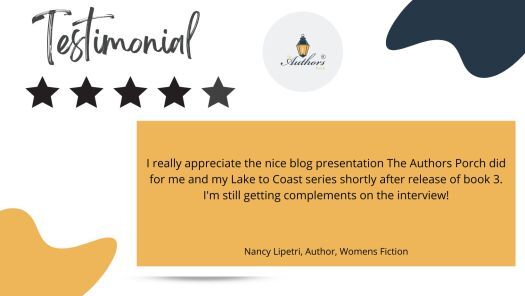 https://theauthorsporch.com/home/be-on-our-blog/When did you start writing?
https://theauthorsporch.com/home/be-on-our-blog/When did you start writing?One of my earliest memories was writing and illustrating a story called “Cheese Please” about a cat searching for cheese, and the only animal who would give him any was a mouse. I was around five years old.
What was it like growing up?My father was an artist, so growing up, I was surrounded by other artists, models, dealers, and collectors. I dabbled with painting and drawing when I was younger but found my visual creative outlet when I discovered photography. That was back in the days of film, and I’m thankful for what that taught me about seeing and composing.
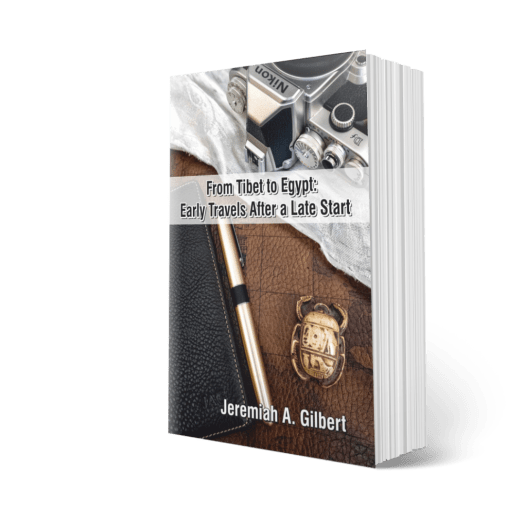 https://jeremiahgilbert.com/How was your early life?
https://jeremiahgilbert.com/How was your early life?Quiet. I’m an only child and mostly kept to myself. You’d most likely find my nose in a book, if I was not composing something on guitar or drafting out a short story.
What has been the biggest influence in your career?I’m very fortunate that both of my parents were very supportive of all my endeavors, whether academic or creative. My mom was also an avid reader, and I’d show her my drafts, knowing she’d lovingly give me her honest opinion. Unfortunately, I lost my mom to cancer and my dad to a heart attack over a decade ago. They used to be the first ones I’d tell my travel tales to when returning from a trip.
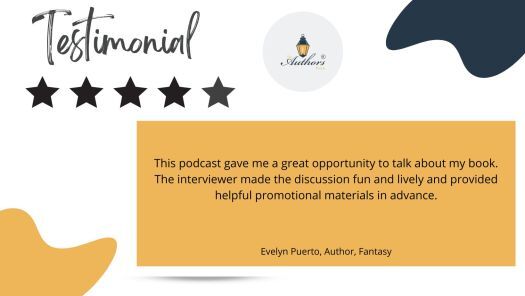 https://theauthorsporch.com/podcast/
https://theauthorsporch.com/podcast/Tell us about your newest release.
My latest is On to Plan C: A Return to Travel. Whereas my first two books focused on writing about past travels, this one includes my photography and covers my return to travel in 2022 after being sidelined for two-and-a-half years due to the pandemic. It was interesting traveling with an eye on later writing about it. While I’ve always traveled with a journal, this time, I found myself making notes and capturing details I knew would make for good reading later.
Which book of yours would you call your favorite child?I have found memories of the writing of my first collection, Can’t Get Here from There: Fifty Tales of Travel. I came up with the idea to start writing down some travel tales while traveling in the Balkans, started drafting out the first ones in a coffeeshop in London, and didn’t have a title for the collection until I wrote the ending piece.
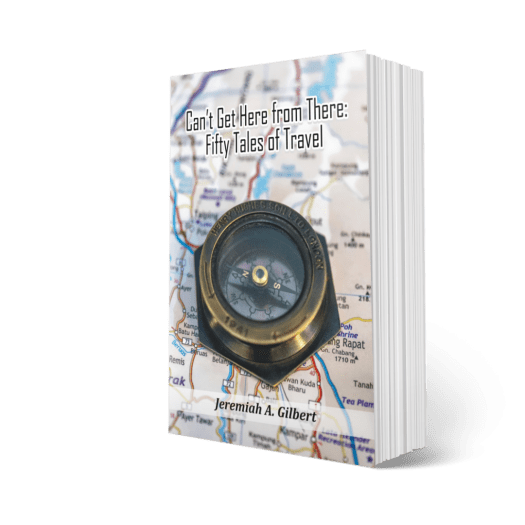 https://jeremiahgilbert.com/What inspired you to write this book?
https://jeremiahgilbert.com/What inspired you to write this book?With On to Plan C I figured I could capture a moment in time, how travel had changed after the pandemic and how it had stayed the same. In the two-and-a-half-years I was grounded, I had also changed in what interested me and how I approached travel. I also enjoyed being able to include photography with this book and intend to do it will any future works.
What are you usually found doing when you’re not writing?I’m a college professor and travel when on break, so most days I’m either in the classroom, responding to emails from students, or doing prep work. Like with my writing, I’m always revising my lectures and assessments, trying to improve them.
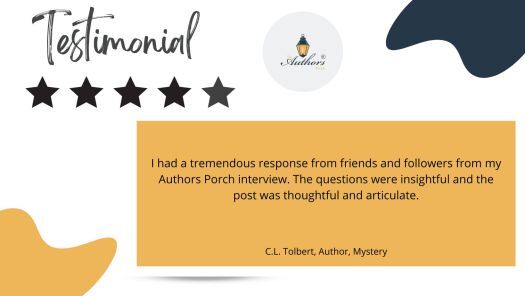 https://theauthorsporch.com/character-interview/What does your writing space look like?
https://theauthorsporch.com/character-interview/What does your writing space look like?I don’t have a dedicated space. I can write most anywhere if it’s relatively quiet and the ideas are flowing. As I mentioned, my first collection was started in a coffee shop. I’m always leaving thoughts and notes on scraps of paper next to my bed as they often come late at night or early in the morning. I do have a home office, but I’m more often found writing on my laptop in the living room.
If you wrote your autobiography, what would you name it?Not entirely sure, but based on my three books so far, it’s sure to have “travel” in the title.
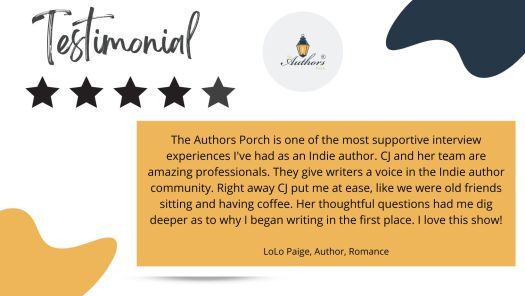 https://theauthorsporch.com/home/promotional-package/How long did it take to write your novel, and what was your process?
https://theauthorsporch.com/home/promotional-package/How long did it take to write your novel, and what was your process?The process for On to Plan C was to travel then write, so it was written in between trips. It covers travels from May 2022, when I returned to international travel, through to early January 2023. I finished it a few months later. While it is nonfiction, I did incorporate some concepts more often found in fiction. For instance, the first chapter, “Near Death in Fiji,” begins by foreshadowing an event that will occur halfway through that trip. The last chapter, “West of the Indies,” begins and ends with an allusion to a quote from Anthony Bourdain.
Favorite reads?My favorite modern author is Cormac McCarthy, who passed away this year. His last two novels, The Passenger and Stella Maris, are companion pieces and were released within a month of each other last year. I read them both during the travels written about in “West of the Indies.” I was originally introduced to him based on my love for William Faulkner.
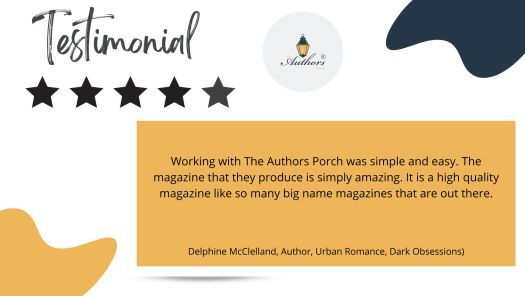 https://theauthorsporch.com/the-authors-porch-magazine/Do you have any book recommendations?
https://theauthorsporch.com/the-authors-porch-magazine/Do you have any book recommendations?Peter Matthiessen’s The Snow Leopard is one of my favorite travel books. It’s old school travel writing, exquisitely observed and written. Paul Theroux started strong with The Great Railway Bazaar: By Train Through Asia, recounting his travels on the Orient Express, the Khyber Mail, and the Trans-Siberian Express, through countries such as Turkey, Iran, India, Japan, and the Soviet Union. I also recently read Janna L. Goodwin’s The End of the World Notwithstanding: Stories I Lived to Tell and really wish I had come up with that title.
What’s your next big project?Unsure. I’ve been drafting out some new travel tales that could be a follow-up to my first book. My second book, From Tibet to Egypt: Early Travels After a Late Start, was based on my journals from my first few years of travel, and I have journals covering the next few years that could be a follow-up to that one as well, though I’d include photos this time. Ultimately, it will probably end up being something I haven’t thought of yet.
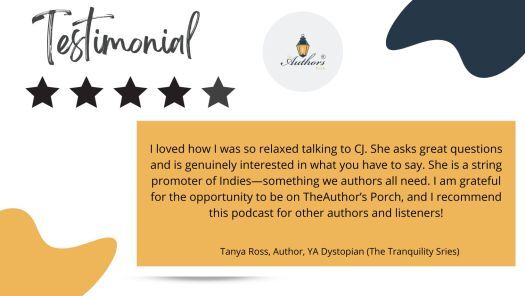 https://theauthorsporch.com/home/break-out-of-your-skin/Do you have any advice for aspiring authors?
https://theauthorsporch.com/home/break-out-of-your-skin/Do you have any advice for aspiring authors?Believe in your work. If you submit it for publication, there’s going to be a lot of rejection. But if you believe in what you’ve submitted, you’ll brush it off and submit again. Sometimes a rejection will come with some constructive criticism. Be open to it and learn from it.
Follow Jeremiah:https://jeremiahgilbert.com/
Want to be on our blog? It’s easy. Sign up now.
You can check out our magazine or write an article, we publish quarterly on Amazon, and it’s free for non-advertisers.

The post Author Interview – Jeremiah Gilbert appeared first on .
July 9, 2023
The Invisible Thread
Writing is the invisible thread that weaves the fabric of our society, connecting people, ideas, and emotions. Are you aware of the profound impact your words can have?

While the majority of people live in a digital world, that does not mean we cannot still connect as humans. Our ability to communicate through emails, online chats, and virtual platforms has opened up new avenues for us to become a collective consciousness, weaving our stories through time and space.
As writers, it is our civic responsibility to hone our craft daily, sharpen our words, and bridge the gaps between individuals, cultures, and perspectives.

Join me on this journey of discovery, and let us unleash the power of our words to shape a more connected and empathetic world.
In a world where words hold immense power, your role as a writer has become more prominent than ever before. As the creator of words and worlds, you have the ability to influence, inspire, and provoke change. Your storytelling shapes how we interact, grow, and learn about the world. Whether through the pages of a book, the lines of a screenplay, or the keystrokes of a blog, your words can ignite minds, challenge perspectives, and unite hearts. Embrace your role as a writer and unleash the transformative power of your words, for you possess the remarkable ability to shape the narrative of our shared humanity.
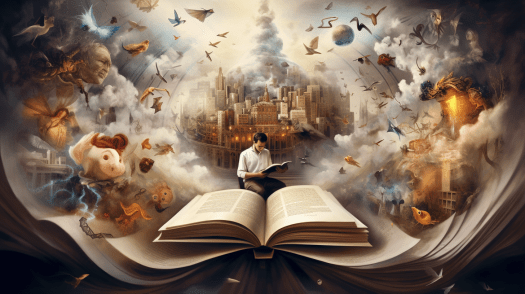
Today, let us delve into writing, a skill that requires daily honing to navigate the ever-changing realm of non-fiction, construct captivating fictional worlds, and foster a sense of inclusivity in our work.
In the dynamic landscape of non-fiction writing, we must adapt our methods to effectively convey messages and engage readers in the information age. Meanwhile, in fiction, our ability to build immersive worlds relies on the mastery of storytelling techniques that transport readers to extraordinary realms. Moreover, as writers, we have the incredible opportunity to create spaces of inclusion where diverse voices are celebrated, and connections are forged across boundaries. By nurturing our craft, we refine our abilities and ensure our writing resonates with everyone, leaving a lasting impact on those who engage with our words.

II. Understanding the Craft of Writing
Language and Vocabulary: Writers develop a rich and varied vocabulary to convey their ideas precisely. Some of this is picked up by actively reading, talking to various cultures, or constantly perusing the dictionary and thesaurus. Writers understand the nuances of language and select words that evoke the desired emotions and imagery. One app I have found to love is “Word Hippo” I downloaded it from my app store, which is excellent. Grammar and Syntax: Writers master the rules of grammar, punctuation, and syntax to ensure clarity and coherence in their writing. They construct sentences and paragraphs in a way that flows smoothly and effectively communicates their message. I did not get English classes well, and the grammar rules sometimes ran through one ear and out the other. Only some people’s niche is grammar; however, Pro Writing Aid and Grammarly help with self-editing, but a good editor after you have self-edited is a must. Take self-editing courses through Coursera or LinkedIn. Oh, and Grammar Girl Rocks, these tools help you improve your writing prowess.Storytelling and Narrative Techniques: Fiction writers employ storytelling techniques such as plot development, character creation, dialogue, and pacing to engage readers and keep them captivated throughout the narrative. They know how to create tension, build suspense, and deliver satisfying resolutions. Start with building each part individually. Ask every question possible. Once you have developed each character, then each part of the world. Then write your story. It will help becuase you know it like the back of your hand, and you will not have holes you cannot answer in the story.
Grammar and Syntax: Writers master the rules of grammar, punctuation, and syntax to ensure clarity and coherence in their writing. They construct sentences and paragraphs in a way that flows smoothly and effectively communicates their message. I did not get English classes well, and the grammar rules sometimes ran through one ear and out the other. Only some people’s niche is grammar; however, Pro Writing Aid and Grammarly help with self-editing, but a good editor after you have self-edited is a must. Take self-editing courses through Coursera or LinkedIn. Oh, and Grammar Girl Rocks, these tools help you improve your writing prowess.Storytelling and Narrative Techniques: Fiction writers employ storytelling techniques such as plot development, character creation, dialogue, and pacing to engage readers and keep them captivated throughout the narrative. They know how to create tension, build suspense, and deliver satisfying resolutions. Start with building each part individually. Ask every question possible. Once you have developed each character, then each part of the world. Then write your story. It will help becuase you know it like the back of your hand, and you will not have holes you cannot answer in the story.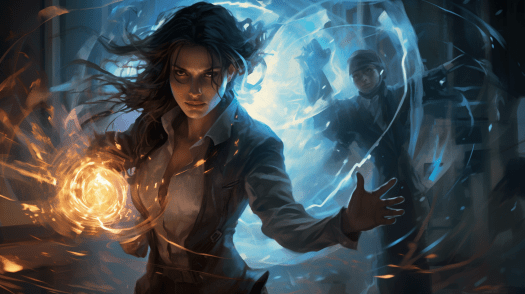 Structure and Organization: Writers understand the importance of structure and organization in their writing. They effectively organize their ideas, develop logical outlines, and create a coherent flow from one paragraph or section to another. Ensuring it flows and is smooth is vital when you write the story. Readers get lost, then DNF (Do Not Finish). Writing a story that keeps readers intrigued the entire time is crucial. Find a beat that works, starting and finishing on high and low tones and keeping story elements hidden and revealed at the correct times.Voice and Style: Each writer has a unique voice and style that sets them apart. Writers work on developing their voice, which encompasses their tone, perspective, and personal flair. They also adapt their style to suit different genres, audiences, and purposes.
Structure and Organization: Writers understand the importance of structure and organization in their writing. They effectively organize their ideas, develop logical outlines, and create a coherent flow from one paragraph or section to another. Ensuring it flows and is smooth is vital when you write the story. Readers get lost, then DNF (Do Not Finish). Writing a story that keeps readers intrigued the entire time is crucial. Find a beat that works, starting and finishing on high and low tones and keeping story elements hidden and revealed at the correct times.Voice and Style: Each writer has a unique voice and style that sets them apart. Writers work on developing their voice, which encompasses their tone, perspective, and personal flair. They also adapt their style to suit different genres, audiences, and purposes.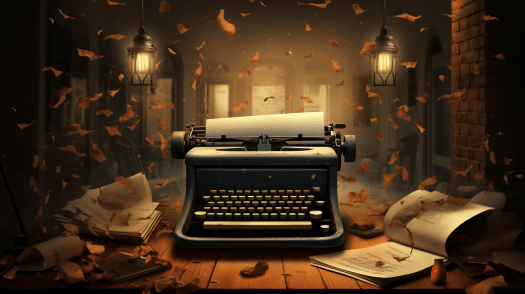 Research and Fact-checking: Writers may need to research to provide accurate information and support their arguments or narratives. They fact-check their work to maintain credibility and integrity. Even in fiction, there is research. Specific genre expectations are essential when writing. If you alienate your readers, do not expect them to come back. An avid reader within that genre is essential, but you can still read other genres.Creativity and Imagination: The craft of writing involves tapping into one’s creativity and imagination to develop original ideas, unique characters, and compelling storylines. Writers explore new perspectives, experiment with different literary techniques, and strive to offer fresh insights to their readers. I have talked to thousands of writers, and they have imagined their characters in all kinds of places. Mine comes from dreams, life events, and even playtime with my dogs. Imagination and inspiration come from everywhere. Enjoy the creative process.
Research and Fact-checking: Writers may need to research to provide accurate information and support their arguments or narratives. They fact-check their work to maintain credibility and integrity. Even in fiction, there is research. Specific genre expectations are essential when writing. If you alienate your readers, do not expect them to come back. An avid reader within that genre is essential, but you can still read other genres.Creativity and Imagination: The craft of writing involves tapping into one’s creativity and imagination to develop original ideas, unique characters, and compelling storylines. Writers explore new perspectives, experiment with different literary techniques, and strive to offer fresh insights to their readers. I have talked to thousands of writers, and they have imagined their characters in all kinds of places. Mine comes from dreams, life events, and even playtime with my dogs. Imagination and inspiration come from everywhere. Enjoy the creative process.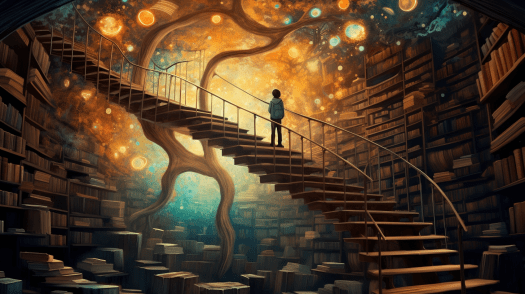 Reading and Continuous Learning: Writers are avid readers who understand the importance of immersing themselves in various literary works. They study the works of other authors, learn from their techniques, and stay abreast of current trends and developments in the writing world.
Reading and Continuous Learning: Writers are avid readers who understand the importance of immersing themselves in various literary works. They study the works of other authors, learn from their techniques, and stay abreast of current trends and developments in the writing world.III. Elements of Craft
Characterization: Characterization involves creating believable and relatable characters that drive the narrative. Writers develop characters with depth, unique personalities, and motivations that propel the story forward. They explore the characters’ desires, flaws, conflicts, and transformations, allowing readers to connect and empathize with them.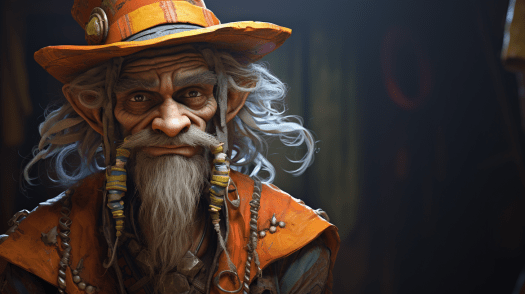 Plot Development: The plot is the sequence of events that make up the story. Writers carefully structure and develop the plot to engage readers and maintain their interest. They create a compelling narrative arc with rising action, conflict, climax, and resolution, ensuring a satisfying and meaningful story progression.Dialogue: Dialogue is the conversation between characters, and it plays a crucial role in revealing their personalities, relationships and advancing the plot. Writers craft authentic, engaging, and reflective dialogue of each character’s voice. Effective dialogue captures emotions, conveys information, and adds depth to the story.
Plot Development: The plot is the sequence of events that make up the story. Writers carefully structure and develop the plot to engage readers and maintain their interest. They create a compelling narrative arc with rising action, conflict, climax, and resolution, ensuring a satisfying and meaningful story progression.Dialogue: Dialogue is the conversation between characters, and it plays a crucial role in revealing their personalities, relationships and advancing the plot. Writers craft authentic, engaging, and reflective dialogue of each character’s voice. Effective dialogue captures emotions, conveys information, and adds depth to the story.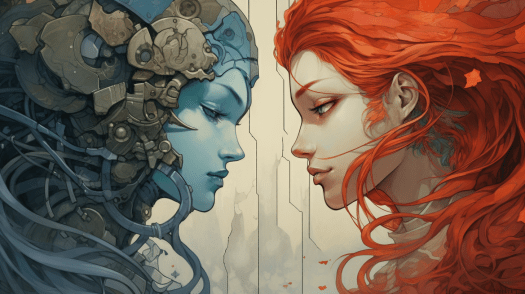 Setting: The setting is the time, place, and environment in which the story occurs. Writers skillfully depict real or imaginary settings to immerse readers in the story’s world. They describe the physical surroundings, atmosphere, and sensory details to create a vivid and believable backdrop for the events unfolding.Pacing: Pacing refers to the speed and rhythm at which the story unfolds. Writers manage pacing to maintain readers’ interest and control the tension throughout the narrative. They vary the pace by incorporating moments of action, suspense, introspection, and reflection, balancing slower and faster-paced scenes to create an engaging reading experience.
Setting: The setting is the time, place, and environment in which the story occurs. Writers skillfully depict real or imaginary settings to immerse readers in the story’s world. They describe the physical surroundings, atmosphere, and sensory details to create a vivid and believable backdrop for the events unfolding.Pacing: Pacing refers to the speed and rhythm at which the story unfolds. Writers manage pacing to maintain readers’ interest and control the tension throughout the narrative. They vary the pace by incorporating moments of action, suspense, introspection, and reflection, balancing slower and faster-paced scenes to create an engaging reading experience.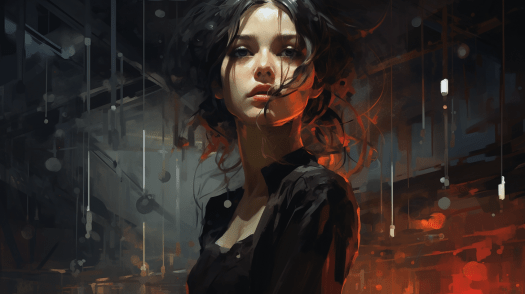 Theme: The theme is the underlying message or central idea explored in the story. Writers weave themes into their narratives to convey deeper meanings and provoke thought. The Themes, such as love, friendship, or identity, can be universal, and writers skillfully explore them through plot, characters, and events.Point of View: The point of view is the perspective from which the story is narrated. Writers carefully choose the narrative point of view, whether first person, third person, or multiple perspectives, to shape readers’ experiences and provide insights into the characters’ thoughts, emotions, and observations.
Theme: The theme is the underlying message or central idea explored in the story. Writers weave themes into their narratives to convey deeper meanings and provoke thought. The Themes, such as love, friendship, or identity, can be universal, and writers skillfully explore them through plot, characters, and events.Point of View: The point of view is the perspective from which the story is narrated. Writers carefully choose the narrative point of view, whether first person, third person, or multiple perspectives, to shape readers’ experiences and provide insights into the characters’ thoughts, emotions, and observations.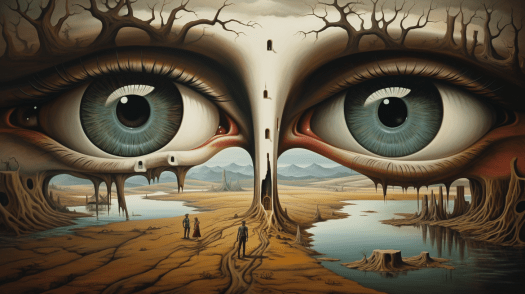 Style and Language: Writers develop their unique style and employ language effectively to enhance their storytelling. They use literary devices, figurative language, and descriptive techniques to create evocative imagery, engage the senses, and evoke emotions in readers.Conflict and Tension: Conflict drives the narrative and keeps readers engaged. Writers introduce various forms of conflict, including internal conflicts within characters, interpersonal conflicts, and external obstacles, to create tension and propel the story forward. Resolving conflicts provides a sense of satisfaction and closure.
Style and Language: Writers develop their unique style and employ language effectively to enhance their storytelling. They use literary devices, figurative language, and descriptive techniques to create evocative imagery, engage the senses, and evoke emotions in readers.Conflict and Tension: Conflict drives the narrative and keeps readers engaged. Writers introduce various forms of conflict, including internal conflicts within characters, interpersonal conflicts, and external obstacles, to create tension and propel the story forward. Resolving conflicts provides a sense of satisfaction and closure.IV. Developing Writing Skills
Here are some practical tips and advice for developing writing skills:Reading widely and criticallyWrite regularly and set goalsSeek feedback and revise based on the feedback that suites your goalsStudy the works of accomplished authorsJoin writing communities or workshops. Here are some great onesV. Overcoming Challenges
Writers go through a plethora of challenges, but if you are determined that this is your path in life, you will overcome them all with grace. Always remember why you started the journey, the path to get where you came from, and where you are heading. Only you can determine the outcome of your writer’s journey. Take your time. This is not a race; believe in yourself more than anyone else. If you are not your biggest fan, who else will be?Want to be on our blog? It’s easy. Sign up now.
You can check out our magazine or write an article, we publish quarterly on Amazon, and it’s free for non-advertisers.
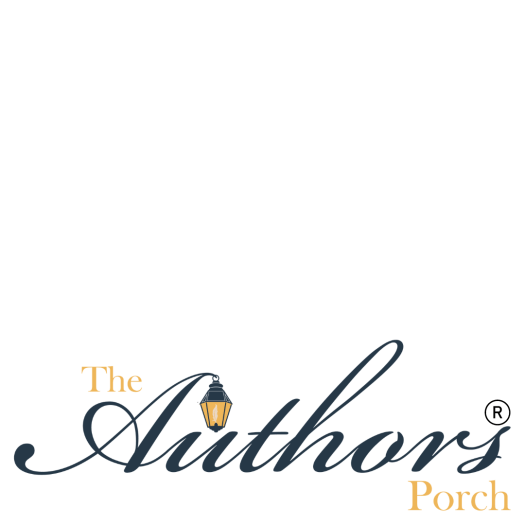
The post The Invisible Thread appeared first on .
July 3, 2023
Where’s Your Confidence
Building confidence in writing can be a gradual process, but here are some practical ways to boost your confidence: in this Where’s Your Confidence piece, I hope you find something that will help.
Tips to help you boost your confidencePractice Regularly: The more you write, the more comfortable and confident you’ll become. Set aside dedicated time for writing and make it a consistent habit. Life will get in the way, so give yourself grace if you can’t reach your designated time. Try your best, and if it doesn’t happen, try again. If it’s not happening regularly, reevaluate the time you set and see if it’s practical or needs to change. Either way, do what will work best with your daily life. Stressing yourself takes away from the experience.

Seek Feedback: Share your writing with trusted friends, writing groups, or mentors who can provide constructive feedback. Learning from others’ perspectives and incorporating their suggestions can help improve your writing and boost your confidence. Understand that constructive criticism is good, but it will hurt at times. We get excited about our work, so when people tell us that it may not be as good as we think, we get overwhelmed with anger, hurt, or even animosity toward the person we thought we trusted. Let go of your Ego and understand that sometimes that feedback is helping you grow. Evaluate the feedback and move on, learn from it, and ensure you utilize the information to push you toward becoming a better writer. Don’t let people into your tribe that doesn’t have your best interest at heart, and you will never get bad feedback.
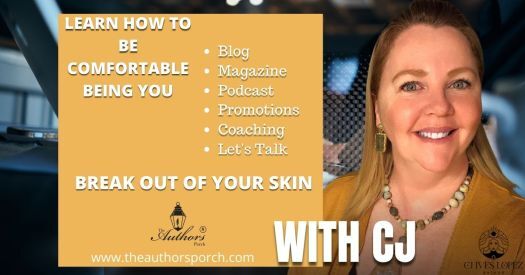 https://theauthorsporch.com/home/break-out-of-your-skin/
https://theauthorsporch.com/home/break-out-of-your-skin/Celebrate Small Achievements: Acknowledge and celebrate your writing milestones, no matter how small they may seem. Completing a chapter, receiving positive feedback, or meeting a personal writing goal are all accomplishments worth recognizing. You can give yourself a small treat, take yourself out to eat, or share it on social media, but don’t stop celebrating those wins because you must be your biggest fan. If you don’t believe it, how is anyone else going to?

Read Widely: Read books, articles, and blogs across different genres and styles. Exposing yourself to diverse writing styles and voices can inspire and expand your writing skills, giving you more confidence in your abilities. How can you understand what the readers want if you’re not reading? Please get to know what’s out there, become a reader, and then you can serve them effectively.

Set Realistic Goals: Break down your writing goals into manageable tasks. Setting realistic and achievable goals allows you to track your progress, providing a sense of accomplishment and boosting your confidence.
 https://theauthorsporch.com/home/promotional-package/
https://theauthorsporch.com/home/promotional-package/Embrace Imperfection: Remember that writing is a process, and it’s natural to make mistakes or have rough drafts. Embrace imperfection and view it as an opportunity to learn and grow. Allow yourself to experiment and make revisions without being too critical of your initial efforts. I once heard on a podcast, “You’re going to suck until you don’t, so just write.” – Russell Nohelty, USA Today Best Selling Author. I listened to that, and I started and haven’t stopped. I wish more people would do that because we don’t know how good we could be until we continue trying. The butterfly is ready once it’s done in its cacoon, so continue growing, and don’t be afraid of those rough drafts. They are part of your cacoon.

Take Writing Workshops or Courses: Enroll in writing workshops, courses, or online classes to enhance your skills and gain valuable insights from experienced instructors. Learning new techniques and receiving professional guidance can boost your confidence and improve your writing abilities. When I started, I was signing up for everything. I downloaded every single guide that was free, and I read everything someone would give me. Some helped, and others didn’t, but I wasn’t turning anything down. I would only suggest you take on some reading material, but find out what you want to know, find a reliable source to teach it, and seek it out. Please don’t sit there without knowledge and say poor me becuase I don’t know; the knowledge is out there, and people want to share it with you.

Find a Supportive Writing Community: Join writing groups, online forums, or communities where you can connect with fellow writers. Engaging with a supportive community can provide encouragement, motivation, and valuable advice.

Reflect on Past Achievements: Take time to reflect on your past writing accomplishments. Remind yourself of successful projects, positive feedback, or personal breakthroughs to reinforce your belief in your abilities.

Practice Self-Care: Taking care of your well-being is crucial for maintaining confidence in your writing. Prioritize self-care activities that help reduce stress, boost creativity, and inspire your writing, such as exercising, practicing mindfulness, or engaging in hobbies you enjoy.

Remember that building confidence in writing is a journey, and it’s important to be patient with yourself. Embrace the process, stay committed, and celebrate your progress along the way.
Want to be on our blog? It’s easy. Sign up now.
You can check out our magazine or write an article, we publish quarterly on Amazon, and it’s free for non-advertisers.

The post Where’s Your Confidence appeared first on .
July 2, 2023
To CON or not to CON
In this post, I’ll give you 3 pros and 3 cons on To CON or not to CON. In case you’re wondering, there’s so much more you can explore on your own, but I’m hoping to give you a short insight on some questions to start asking yourself if you should attend conventions or not. In the end, I’ll give you links to the ones I’m attending, but of course, that list is not all-inclusive, and you should seek out the ones that interest you the most.
Pros of Attending Literary Conferences: 1. Networking: Connect with fellow writers, agents, and industry professionals, fostering valuable relationships.Networking Opportunities: Literary conferences bring together writers, agents, editors, publishers, and other industry professionals in one place. This creates a unique environment where you can connect with like-minded individuals who share your passion for writing and publishing. You have the chance to meet and interact with people who can potentially become valuable contacts in your writing journey. Building Relationships: Conferences offer a conducive setting to establish relationships with fellow writers, industry insiders, and potential mentors. These connections can lead to collaboration opportunities, mentorship, and valuable advice. Engaging in conversations and sharing experiences with other writers can be inspiring and motivating, fostering a sense of community and support. We all know how lonely the author’s experience can be, yet it doesn’t have to be once you connect with your tribe.Professional Contacts: Connecting with agents, editors, and publishers at conferences can open doors to potential publishing opportunities. Building relationships with industry professionals allows you to pitch your work directly, receive valuable feedback, and gain insights into the publishing process. These contacts may also provide guidance on navigating the publishing industry and help you stay informed about market trends. Not everyone wants a traditional publishing deal; however, understanding what the market is looking for and having connections leads to better sales.Knowledge Sharing: Networking extends beyond formal interactions. Informal conversations, social events, and shared experiences during conferences provide opportunities to learn from others. You can exchange ideas and discuss writing techniques, marketing strategies, and industry insights. These discussions can broaden your perspective, spark creativity, and enhance your understanding of the writing and publishing landscape. It’s not always about business. Get to know people on a personal level and connect. After all, we’re all people in the end.Long-Term Support: Networking at conferences can lead to long-term relationships and support systems. You may find critique partners, writing groups, or accountability partners who can provide ongoing feedback, encouragement, and support throughout your writing journey. These connections can be invaluable as you navigate the ups and downs of the writing process. You don’t have to go alone in this journey, and you can find a tribe that is willing to excel you to the top of the charts and to the dream you set out to have. 2. Learning Opportunities: Attend workshops, panels, and presentations to gain insights into various aspects of writing, publishing, and marketing.
1. Networking: Connect with fellow writers, agents, and industry professionals, fostering valuable relationships.Networking Opportunities: Literary conferences bring together writers, agents, editors, publishers, and other industry professionals in one place. This creates a unique environment where you can connect with like-minded individuals who share your passion for writing and publishing. You have the chance to meet and interact with people who can potentially become valuable contacts in your writing journey. Building Relationships: Conferences offer a conducive setting to establish relationships with fellow writers, industry insiders, and potential mentors. These connections can lead to collaboration opportunities, mentorship, and valuable advice. Engaging in conversations and sharing experiences with other writers can be inspiring and motivating, fostering a sense of community and support. We all know how lonely the author’s experience can be, yet it doesn’t have to be once you connect with your tribe.Professional Contacts: Connecting with agents, editors, and publishers at conferences can open doors to potential publishing opportunities. Building relationships with industry professionals allows you to pitch your work directly, receive valuable feedback, and gain insights into the publishing process. These contacts may also provide guidance on navigating the publishing industry and help you stay informed about market trends. Not everyone wants a traditional publishing deal; however, understanding what the market is looking for and having connections leads to better sales.Knowledge Sharing: Networking extends beyond formal interactions. Informal conversations, social events, and shared experiences during conferences provide opportunities to learn from others. You can exchange ideas and discuss writing techniques, marketing strategies, and industry insights. These discussions can broaden your perspective, spark creativity, and enhance your understanding of the writing and publishing landscape. It’s not always about business. Get to know people on a personal level and connect. After all, we’re all people in the end.Long-Term Support: Networking at conferences can lead to long-term relationships and support systems. You may find critique partners, writing groups, or accountability partners who can provide ongoing feedback, encouragement, and support throughout your writing journey. These connections can be invaluable as you navigate the ups and downs of the writing process. You don’t have to go alone in this journey, and you can find a tribe that is willing to excel you to the top of the charts and to the dream you set out to have. 2. Learning Opportunities: Attend workshops, panels, and presentations to gain insights into various aspects of writing, publishing, and marketing.  Learning from Experts: Literary conferences often feature workshops, panels, and presentations conducted by industry experts, bestselling authors, editors, agents, and marketing professionals. These sessions provide a platform for learning from experienced individuals who can share their knowledge, insights, and strategies. You can gain valuable information about writing, publishing, and marketing aspects, including craft techniques, industry trends, self-editing tips, book promotion strategies, and more. Why not learn from those who have come before you?Skill Development: Workshops and conference sessions offer a chance to develop and refine your writing skills. You can learn about specific writing techniques, storytelling approaches, character development, plot structure, dialogue, and other elements that contribute to crafting compelling narratives. You can enhance your writing abilities and broaden your creative toolkit by attending sessions focused on your areas of interest or areas you want to improve. You don’t have to attend everything. Focus on what you need to learn and zero in on that.Industry Insights: Literary conferences provide a unique opportunity to gain insights into the ever-evolving publishing industry. Panels and presentations often cover traditional publishing, self-publishing, hybrid models, literary trends, emerging genres, and digital platforms. Understanding the current landscape and industry practices can help you make informed decisions about your writing career, from manuscript submission strategies to marketing plans. Once you learn something, it changes, and keeping up with those changes will ensure you continue making sales. Don’t get stagnant in your career if you want to be a successful writer.Networking with Experts: Alongside the learning opportunities, workshops, and sessions also provide a chance to interact with industry experts and professionals. During Q&A sessions or informal conversations, you can ask questions, seek advice, and receive feedback on your work. Building connections with experts in the field can offer ongoing support, mentorship, and potential collaboration opportunities.Inspiration and Motivation: Conferences are not just about learning practical skills but can reignite your passion for writing. Being in an environment surrounded by fellow writers and industry professionals can be highly motivating. Hearing success stories, learning from experienced authors, and engaging in conversations with like-minded individuals can inspire fresh ideas, boost creativity, and reaffirm your commitment to your writing goals.3. Industry Trends: Stay up-to-date with the latest trends, innovations, and market demands in the literary world.
Learning from Experts: Literary conferences often feature workshops, panels, and presentations conducted by industry experts, bestselling authors, editors, agents, and marketing professionals. These sessions provide a platform for learning from experienced individuals who can share their knowledge, insights, and strategies. You can gain valuable information about writing, publishing, and marketing aspects, including craft techniques, industry trends, self-editing tips, book promotion strategies, and more. Why not learn from those who have come before you?Skill Development: Workshops and conference sessions offer a chance to develop and refine your writing skills. You can learn about specific writing techniques, storytelling approaches, character development, plot structure, dialogue, and other elements that contribute to crafting compelling narratives. You can enhance your writing abilities and broaden your creative toolkit by attending sessions focused on your areas of interest or areas you want to improve. You don’t have to attend everything. Focus on what you need to learn and zero in on that.Industry Insights: Literary conferences provide a unique opportunity to gain insights into the ever-evolving publishing industry. Panels and presentations often cover traditional publishing, self-publishing, hybrid models, literary trends, emerging genres, and digital platforms. Understanding the current landscape and industry practices can help you make informed decisions about your writing career, from manuscript submission strategies to marketing plans. Once you learn something, it changes, and keeping up with those changes will ensure you continue making sales. Don’t get stagnant in your career if you want to be a successful writer.Networking with Experts: Alongside the learning opportunities, workshops, and sessions also provide a chance to interact with industry experts and professionals. During Q&A sessions or informal conversations, you can ask questions, seek advice, and receive feedback on your work. Building connections with experts in the field can offer ongoing support, mentorship, and potential collaboration opportunities.Inspiration and Motivation: Conferences are not just about learning practical skills but can reignite your passion for writing. Being in an environment surrounded by fellow writers and industry professionals can be highly motivating. Hearing success stories, learning from experienced authors, and engaging in conversations with like-minded individuals can inspire fresh ideas, boost creativity, and reaffirm your commitment to your writing goals.3. Industry Trends: Stay up-to-date with the latest trends, innovations, and market demands in the literary world.  Industry Insights: Literary conferences provide a pulse on the current state of the publishing industry. Keynote speeches, panel discussions, and presentations often shed light on emerging trends, evolving reader preferences, and new opportunities for authors. You can make informed decisions regarding your writing, marketing strategies, and overall career trajectory by staying informed about the industry landscape.Market Demands: Understanding market demands is crucial for authors seeking to connect with readers and secure publishing deals. Conferences offer a platform to learn about the types of stories, genres, and themes that are in high demand. Publishers, agents, and industry professionals often share insights on what readers are looking for and what publishing houses are actively seeking. This knowledge can help you tailor your work to align with market needs and increase your chances of success.Genre and Niche Trends: Literary conferences often feature sessions dedicated to specific genres or niches within the industry. These sessions dive deep into genre-specific trends, discussing what’s popular, what’s emerging, and what’s on the horizon. Whether you write in romance, mystery, science fiction, or any other genre, attending these sessions can provide valuable information on what readers are currently craving and help you position your work accordingly.Technological Innovations: The publishing industry is constantly evolving with advancements in technology. Conferences often showcase the latest tools, platforms, and digital strategies that can enhance an author’s reach and visibility. From discussions on e-books, audiobooks, and interactive storytelling to sessions on social media marketing and digital advertising, you can gain insights into innovative approaches that can elevate your writing career.Networking for Market Intel: Networking with fellow authors, agents, editors, and industry professionals at conferences can also provide valuable market intelligence. Conversations with professionals in the field can uncover insider information, upcoming trends, and insights into what publishers are seeking. These informal discussions and connections can give you a competitive edge and help you navigate the ever-changing literary landscape.Cons of Attending Literary Conferences:
Industry Insights: Literary conferences provide a pulse on the current state of the publishing industry. Keynote speeches, panel discussions, and presentations often shed light on emerging trends, evolving reader preferences, and new opportunities for authors. You can make informed decisions regarding your writing, marketing strategies, and overall career trajectory by staying informed about the industry landscape.Market Demands: Understanding market demands is crucial for authors seeking to connect with readers and secure publishing deals. Conferences offer a platform to learn about the types of stories, genres, and themes that are in high demand. Publishers, agents, and industry professionals often share insights on what readers are looking for and what publishing houses are actively seeking. This knowledge can help you tailor your work to align with market needs and increase your chances of success.Genre and Niche Trends: Literary conferences often feature sessions dedicated to specific genres or niches within the industry. These sessions dive deep into genre-specific trends, discussing what’s popular, what’s emerging, and what’s on the horizon. Whether you write in romance, mystery, science fiction, or any other genre, attending these sessions can provide valuable information on what readers are currently craving and help you position your work accordingly.Technological Innovations: The publishing industry is constantly evolving with advancements in technology. Conferences often showcase the latest tools, platforms, and digital strategies that can enhance an author’s reach and visibility. From discussions on e-books, audiobooks, and interactive storytelling to sessions on social media marketing and digital advertising, you can gain insights into innovative approaches that can elevate your writing career.Networking for Market Intel: Networking with fellow authors, agents, editors, and industry professionals at conferences can also provide valuable market intelligence. Conversations with professionals in the field can uncover insider information, upcoming trends, and insights into what publishers are seeking. These informal discussions and connections can give you a competitive edge and help you navigate the ever-changing literary landscape.Cons of Attending Literary Conferences: 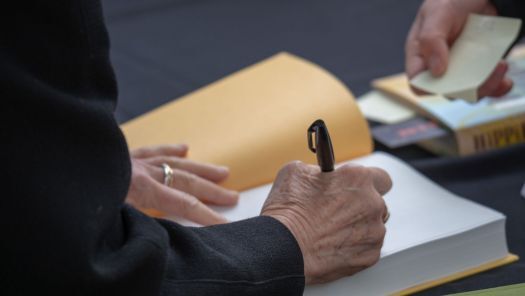 1. Cost: Conference fees, travel expenses, accommodation, and other associated costs can add up, posing a financial burden. Cost of Conference Fees: Literary conferences typically require attendees to pay registration fees, which can vary depending on the event and its duration. These fees cover access to keynote speeches, panel discussions, workshops, and other conference activities. While the cost of conference fees can vary, it’s important to consider whether the benefits of attending outweigh the financial investment. Not everyone can afford conferences, and that’s understandable, weigh the circumstances of missing the conference with the benefits it provides and learn what you are willing to sacrifice or not sacrifice. Only you know what you need to do for your career.Travel Expenses: Depending on the conference’s location, you may need to factor in travel expenses such as airfare, train tickets, or gas for driving. Travel costs can significantly impact your overall budget, especially if the conference is held in a distant city or requires international travel. It’s essential to consider whether the potential networking opportunities and learning experiences justify the financial outlay for travel. Extensive research needs to be done when thinking of travel. Budgeting effectively is the only way you can make the expenses come close to what you need.Accommodation: Attending a multi-day conference often requires arranging accommodation, which adds to the overall cost. Hotels, rental properties, or other lodging options near the conference venue may incur additional expenses. Researching and planning ahead is essential to find affordable and convenient accommodation options that fit your budget.Additional Expenses: Apart from conference fees, travel, and accommodation, there might be additional costs to consider. These can include meals, transportation to and from the conference venue, parking fees, and any optional activities or networking events associated with the conference. Budgeting for these additional expenses is important to avoid any financial surprises.2. Time Commitment: Attending conferences often requires taking time off work or personal commitments, impacting your schedule.
1. Cost: Conference fees, travel expenses, accommodation, and other associated costs can add up, posing a financial burden. Cost of Conference Fees: Literary conferences typically require attendees to pay registration fees, which can vary depending on the event and its duration. These fees cover access to keynote speeches, panel discussions, workshops, and other conference activities. While the cost of conference fees can vary, it’s important to consider whether the benefits of attending outweigh the financial investment. Not everyone can afford conferences, and that’s understandable, weigh the circumstances of missing the conference with the benefits it provides and learn what you are willing to sacrifice or not sacrifice. Only you know what you need to do for your career.Travel Expenses: Depending on the conference’s location, you may need to factor in travel expenses such as airfare, train tickets, or gas for driving. Travel costs can significantly impact your overall budget, especially if the conference is held in a distant city or requires international travel. It’s essential to consider whether the potential networking opportunities and learning experiences justify the financial outlay for travel. Extensive research needs to be done when thinking of travel. Budgeting effectively is the only way you can make the expenses come close to what you need.Accommodation: Attending a multi-day conference often requires arranging accommodation, which adds to the overall cost. Hotels, rental properties, or other lodging options near the conference venue may incur additional expenses. Researching and planning ahead is essential to find affordable and convenient accommodation options that fit your budget.Additional Expenses: Apart from conference fees, travel, and accommodation, there might be additional costs to consider. These can include meals, transportation to and from the conference venue, parking fees, and any optional activities or networking events associated with the conference. Budgeting for these additional expenses is important to avoid any financial surprises.2. Time Commitment: Attending conferences often requires taking time off work or personal commitments, impacting your schedule.  Time Away from Work: Literary conferences typically span multiple days, from a weekend to a week-long event. Attending these conferences may require taking time off from your regular work schedule, which can impact your workload and productivity. It’s essential to consider the potential consequences of being away from work and whether you can afford to take time off without negatively affecting your professional commitments. Working is how you pay the bills. Can you afford the time off? If not, then maybe a virtual conference is suited better for you. Maybe finding one over the weekend is even better? Make the conference work for you, not you work for the conference. We all have to survive.Personal Commitments: Attending a conference can also interfere with personal commitments, such as family responsibilities, social engagements, or other activities you had planned. Assessing the impact that being away for the conference might have on your personal life and relationships is vital. Prioritizing your personal commitments and finding a balance between attending the conference and fulfilling your responsibilities is crucial.Travel Time: Depending on the location of the conference, you may need to account for travel time to and from the event. This includes the time spent on the journey and potential delays, layovers, or transportation to the conference venue. It’s important to factor in travel time when considering the time commitment required to attend the conference.Opportunity Cost: The time you spend at a conference is time that could have been allocated to other writing-related activities, such as writing, editing, or marketing your work. It’s important to evaluate whether the knowledge and connections gained at the conference outweigh the potential progress you could have made in your writing career during that time.3. Overwhelming Experience: Large conferences with numerous sessions and events can be overwhelming, making prioritizing and managing your time effectively challenging.
Time Away from Work: Literary conferences typically span multiple days, from a weekend to a week-long event. Attending these conferences may require taking time off from your regular work schedule, which can impact your workload and productivity. It’s essential to consider the potential consequences of being away from work and whether you can afford to take time off without negatively affecting your professional commitments. Working is how you pay the bills. Can you afford the time off? If not, then maybe a virtual conference is suited better for you. Maybe finding one over the weekend is even better? Make the conference work for you, not you work for the conference. We all have to survive.Personal Commitments: Attending a conference can also interfere with personal commitments, such as family responsibilities, social engagements, or other activities you had planned. Assessing the impact that being away for the conference might have on your personal life and relationships is vital. Prioritizing your personal commitments and finding a balance between attending the conference and fulfilling your responsibilities is crucial.Travel Time: Depending on the location of the conference, you may need to account for travel time to and from the event. This includes the time spent on the journey and potential delays, layovers, or transportation to the conference venue. It’s important to factor in travel time when considering the time commitment required to attend the conference.Opportunity Cost: The time you spend at a conference is time that could have been allocated to other writing-related activities, such as writing, editing, or marketing your work. It’s important to evaluate whether the knowledge and connections gained at the conference outweigh the potential progress you could have made in your writing career during that time.3. Overwhelming Experience: Large conferences with numerous sessions and events can be overwhelming, making prioritizing and managing your time effectively challenging.  Wide Range of Choices: Large conferences often offer a diverse range of sessions, workshops, panels, and events covering various topics related to writing, publishing, and the literary industry. While this can be exciting, it can also be overwhelming to navigate through the multitude of options and choose which sessions to attend. It’s important to plan ahead, review the conference program, and prioritize the sessions that align with your interests, goals, and areas you want to improve upon.Time Management: With so many sessions happening simultaneously, managing your time effectively becomes crucial. Creating a schedule or itinerary is essential, identifying the sessions you want to attend and allowing for breaks and networking opportunities. However, it’s also important to remain flexible and open to unexpected opportunities that may arise during the conference.FOMO (Fear of Missing Out): Large conferences can trigger the fear of missing out on valuable sessions or networking opportunities. Choosing between conflicting sessions or events can be challenging, and you may worry about not making the most of your conference experience. To alleviate this, consider connecting with other attendees to share notes or resources from sessions you could not attend. Additionally, some conferences may provide recordings or handouts for sessions, allowing you to access the content afterward.Networking Challenges: In large conferences, the sheer number of attendees can make it harder to establish meaningful connections. Engaging in one-on-one conversations or having quality interactions with industry professionals or fellow writers may be more challenging. However, being proactive, attending smaller networking events, or seeking out specific individuals you want to connect with can help overcome these challenges. If you are someone like me who has social anxiety, this may be a bigger challenge. Make sure you are factoring all this into your decisions as well. Find the conferences you know you can bite off little chunks with and that won’t create a problem with your mental health.Information Overload: The abundance of information and insights shared during a large conference can be overwhelming. It’s essential to take notes, ask questions, and absorb information at a pace that works for you. Consider prioritizing key takeaways and actionable items to implement in your writing journey. Remember, it’s not about absorbing everything but focusing on what resonates and can be applied effectively.
Wide Range of Choices: Large conferences often offer a diverse range of sessions, workshops, panels, and events covering various topics related to writing, publishing, and the literary industry. While this can be exciting, it can also be overwhelming to navigate through the multitude of options and choose which sessions to attend. It’s important to plan ahead, review the conference program, and prioritize the sessions that align with your interests, goals, and areas you want to improve upon.Time Management: With so many sessions happening simultaneously, managing your time effectively becomes crucial. Creating a schedule or itinerary is essential, identifying the sessions you want to attend and allowing for breaks and networking opportunities. However, it’s also important to remain flexible and open to unexpected opportunities that may arise during the conference.FOMO (Fear of Missing Out): Large conferences can trigger the fear of missing out on valuable sessions or networking opportunities. Choosing between conflicting sessions or events can be challenging, and you may worry about not making the most of your conference experience. To alleviate this, consider connecting with other attendees to share notes or resources from sessions you could not attend. Additionally, some conferences may provide recordings or handouts for sessions, allowing you to access the content afterward.Networking Challenges: In large conferences, the sheer number of attendees can make it harder to establish meaningful connections. Engaging in one-on-one conversations or having quality interactions with industry professionals or fellow writers may be more challenging. However, being proactive, attending smaller networking events, or seeking out specific individuals you want to connect with can help overcome these challenges. If you are someone like me who has social anxiety, this may be a bigger challenge. Make sure you are factoring all this into your decisions as well. Find the conferences you know you can bite off little chunks with and that won’t create a problem with your mental health.Information Overload: The abundance of information and insights shared during a large conference can be overwhelming. It’s essential to take notes, ask questions, and absorb information at a pace that works for you. Consider prioritizing key takeaways and actionable items to implement in your writing journey. Remember, it’s not about absorbing everything but focusing on what resonates and can be applied effectively.Consider these factors when deciding to attend a literary conference. Assess your goals, budget, and availability to make an informed decision that aligns with your writing journey and aspirations.
Here are the links to the conferences I’ll be attending. I strive to strike a balance between virtual and in-person events to optimize my learning while avoiding overwhelming myself. It allows me to manage my time effectively, considering my commitments to a full-time job, author career, and building my author platform. Join me on The Authors Porch as I navigate these enriching experiences and share valuable insights with fellow writers and enthusiasts. Together, let’s embark on a journey of continuous learning and growth in the literary world!
Virtual: The BookFest
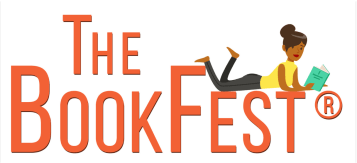
Virtual: BookMarCon
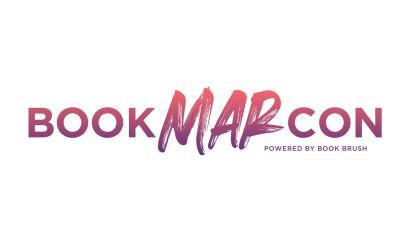
In Person: Writers Con
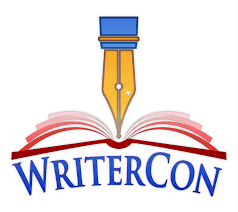
In Person: Literary Lubbock
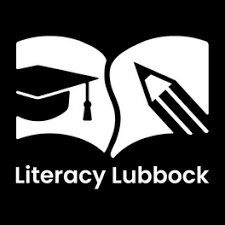
Want to be on our blog? It’s easy. Sign up now.
You can check out our magazine or write an article, we publish quarterly on Amazon, and it’s free for non-advertisers.

The post To CON or not to CON appeared first on .
June 28, 2023
Author Interview – Shelley Cass
Shelley Cass is the mother of fantasy worlds, magical erotica, myth touched dystopias, and of the Raze Warfare series – a kickass LGBTQ+ action/romance/social commentary. We enjoyed having this Author Interview – Shelley Cass, for our blog. Check out this fantastic author and follow them for more amazing stories.
Shelley Cass works with diverse teens as a secondary teacher. She has always been the head in the sky (slow, distracted) type, and an unhealthy blend of the scrambled perfectionist.
 https://theauthorsporch.com/home/be-on-our-blog/
https://theauthorsporch.com/home/be-on-our-blog/Her ADHD brain made it hard to learn easy things, like keeping her attention still, or learning to read when she was a kid. When that mental block lifted, the same ADHD brain became addicted to reading, Devouring all the words she’d felt too dumb to process before. It was a revelation.
She has such empathy for her own students who have to overcome mental blocks. And also social blocks. It was watching her students attend equal marriage marches before this was legalized that made Shelley more passionate that love is love. The idea that her students may not have access to a wedding day because of their type of love was horrifying. That fact helped her to write Raze and Kiddo’s romance in Raze Warfare. The character Kiddo is loaded with Shelly’s calm, perfect, storm-in-a-teacup qualities. It’s very therapeutic, really.
 https://theauthorsporch.com/podcast/When did you start writing?
https://theauthorsporch.com/podcast/When did you start writing?I wasn’t the brightest button. It took a long while for my brain to absorb how letters strung into words and then into sentences. My poor brain never managed to work out numbers, though. When all the other kids raced to get prime challenger spots in a game of Maths Champ or Maths Tiggy in the classroom, I would be squeezing myself between the tubs and the teacher’s desk so nobody could find me to challenge me.
The embarrassment of losing every time was overwhelming. But when we got to creative writing and reading our work out to the class (now that I had worked out words and didn’t have to mumble nonsense out to pretend I was reading something)… I got laughs. I got claps. I got joy. I vaguely remember an early story called ‘The Adventures of the Talking Glue Stick,’ and I believe this brilliance was produced in grade two. Writing became my escape, my fixation, and my dopamine hit.
 https://theauthorsporch.com/character-interview/What was it like growing up?
https://theauthorsporch.com/character-interview/What was it like growing up?Aside from the pitfalls of being a daydreamer at school, growing up was lovely. My parents and sisters nurtured every imaginative tangent while also keeping me grounded and working their butts off to help me succeed in learning the skills I needed for the real world.
How was your early life?My early life was all about the piles of toys surrounding me in bed, the story times, the games, the armchair cuddles, and the learning. Always learning.
 https://theauthorsporch.com/home/break-out-of-your-skin/What has been the biggest influence in your career?
https://theauthorsporch.com/home/break-out-of-your-skin/What has been the biggest influence in your career?My fantasy trilogy, ‘A Fairy’s Tale,’ took half my life to write. I began writing that story at fourteen and built the most epic adventure for fifteen years. Yes, it was epic. But I also couldn’t let it go. I couldn’t stop overthinking it. When I let the need for perfection go and realized that I am an English teacher who helps students to self-edit every day, I dropped so much dense fluff from my own work.
I had to swap hats from writer to editor. I had to learn how to self-publish and let it go. Once I released myself from agonizing, and swapped hats from writer to editor to publisher, things started to come much easier. I could access readers from across the world simply because I wasn’t in my own way anymore. So I suppose it was the hats that influenced me. That and, I don’t want to be a fraud telling my students to chase their dreams, all while stifling my own.
 https://theauthorsporch.com/the-authors-porch-magazine/
https://theauthorsporch.com/the-authors-porch-magazine/Tell us about your newest release.
Raze Warfare is a passionate, sweet, brutal, punch-to-the-gut bisexual romance. The Raze gang are the kind of people who have had to band together to survive a reality where money makes the world go round. Having no family or money makes you a perfect target to be harvested by the snatchers. People traffickers can find all the best candidates for disappearing and selling.
Which book of yours would you call your favorite child?Raze Warfare. Kiddo is me in so many ways, and Raze is larger than life, like my husband. I also love the diversity of the gang. This series is very much like SE Hinton’s ‘The Outsiders,’ If women had been kick-ass members of the gang, sexualities had been open, some gender-bending had been normal, the family was mixed race, and the enemy wanted to sell you instead of scare you.
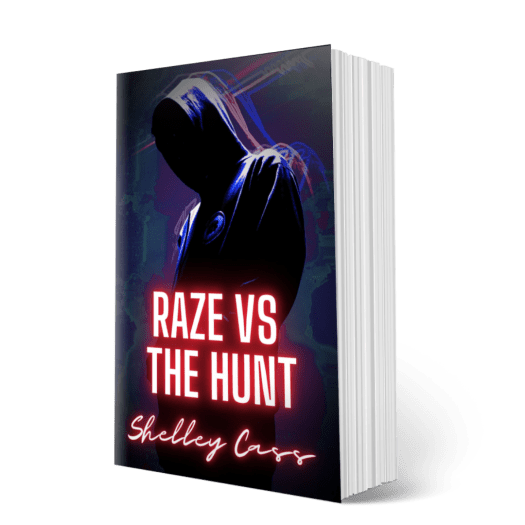 https://www.shelleycass.com/What inspired you to write this book?
https://www.shelleycass.com/What inspired you to write this book?I just saw the opening scene unfolding. I had no idea where it was going. But I saw Kiddo in the library and Raze – unnoticed and cat-like; stretched out on the old window sill. He was slipping down, stalking forward, curious to get to know what made Kiddo tick. I had to get to know them.
What are you usually found doing when you’re not writing?Obsessively organizing things, crafting, blobbing on the couch with a cup of tea and the hubby, being guilted by big eyes into walking the fur-baby Ace, or marking papers.
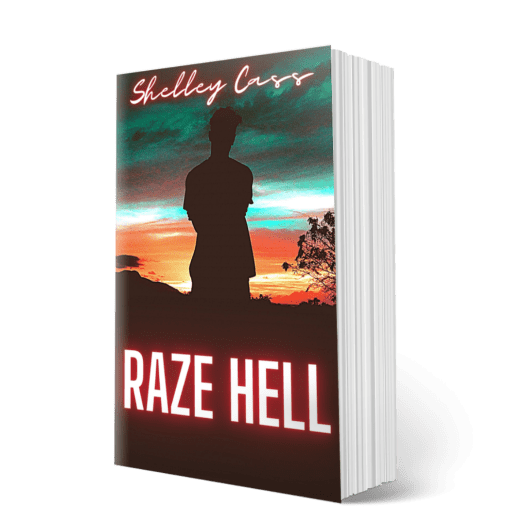 https://www.shelleycass.com/What does your writing space look like?
https://www.shelleycass.com/What does your writing space look like?A pink velvet armchair and a tall, warm rose-gold lamp. Bliss.
If you wrote your autobiography, what would you name it?Where did I put my…?
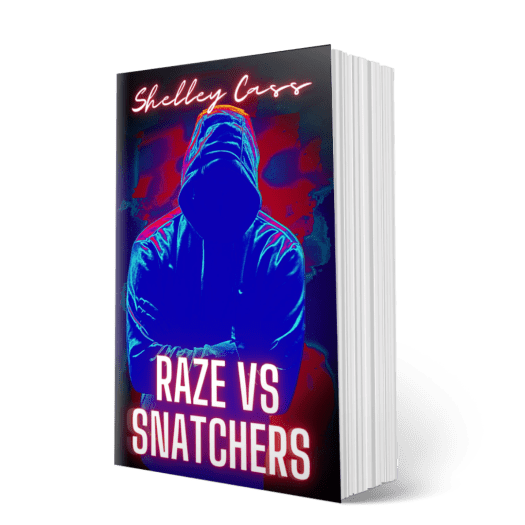 How long did it take to write your novel, and what was your process?
How long did it take to write your novel, and what was your process?Now that I’ve got out of my own way, I can smash out a novel each school holiday if I want to. I just have to be careful not to burn out, as it becomes all consuming.
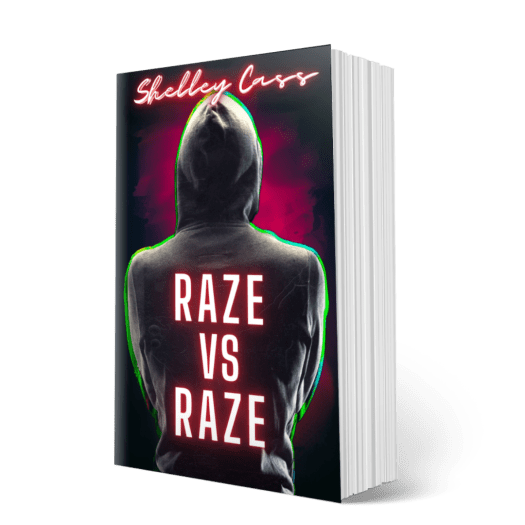 https://www.shelleycass.com/Favorite reads?
https://www.shelleycass.com/Favorite reads?I teach the heavy stuff in English and History classes. So I like to switch off with some good ol smut or fantasy. Or smutty fantasy. I’m an audiobook lover, as I clean, walk Acey or sit in traffic every day.
Do you have any book recommendations?The Thief, by Megan Whalen Turner, is the most brilliant book I’ve ever read. A charismatic, charming, reckless main character, and twists that still unfold before my eyes, despite how many times I’ve read this book. Ahhhhhhhh.
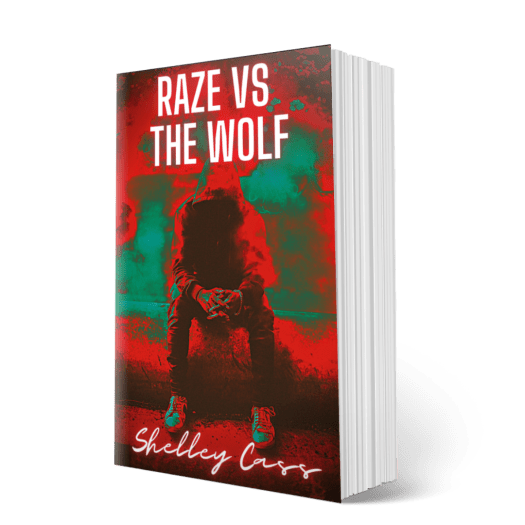 https://www.shelleycass.com/What’s your next big project?
https://www.shelleycass.com/What’s your next big project?My next edition is an addition to the family. A baby girl is on her way, kicking at my phone as I lean on her and type this.
Do you have any advice for aspiring authors?Get out of your way!
Follow Shelly:https://facebook.com/ShellCassy
Want to be on our blog? It’s easy. Sign up now.
You can check out our magazine or write an article, we publish quarterly on Amazon, and it’s free for non-advertisers.

The post Author Interview – Shelley Cass appeared first on .
June 26, 2023
Author Interview – Susan J. Farese
Susan J. Farese is an author/poet, nurse, veteran, and owner of SJF Communications in San Diego, CA. She is in awe of hummingbirds, seahorses, shorebirds, and life! We enjoyed having this Author Interview – Susan J. Farese for our blog. Check out this fantastic author and follow them for more amazing stories.
Susan J. Farese, MSN, RN, a native of New Jersey, is the owner/ president of SJF Communications, San Diego, CA. SJF Communications, originally established in 2002 in San Jose, CA, provides communications services, including Public Relations, Publicity, Marketing, Websites, Filmmaking, Acting, Social Media, Writing and Public Speaking, Photography, Mentoring, Coaching, and Legal Nurse Consulting services.
Ms. Farese has diversified experience in health care/communications, including clinical nursing practice, management, education/training, research, and consulting. She has a Master’s Degree in Nursing in Adult Health from Seton Hall University (NJ) and a Bachelor of Science Degree in Nursing from Widener University (PA). Susan has presented numerous continuing education classes, seminars, and keynotes.
Susan J. Farese is the author of the book Poetic Expressions in Nursing…Sharing the Caring (1993 and 2021) currently teaches ‘Capturing Your Creativity with Haiku‘ workshops and has published poetry and articles on a variety of topics. Since 2017, Susan has been a Volunteer Mentor in the San Diego State University Aztec Mentor Program.
Contact SJF Communications at 858-353-7488 or info@sjfcommunications.com. Linktree link: https://linktr.ee/Sjfcommo
 https://theauthorsporch.com/character-interview/When did you start writing?
https://theauthorsporch.com/character-interview/When did you start writing?1991
What was it like growing up?I grew up in a small blue collar town in NJ. My Mom (now deceased – she passed away last year) was a wonderfully talented dance teacher and professional singer (before I was born) but occasionally did choreography during my childhood and teens. My Dad, a great athlete, was in sales, real estate (salesperson and broker), and also in financial services and insurance (and continues to teach continuing education for real estate at age 88)! I have one brother several years younger than me. My maternal grandparents lived around the corner until my grandfather passed away at age 55, and my grandmother suffered from and endured early Alzheimer’s Disease and passed away at age 60. My paternal grandparents lived a town away.
 https://theauthorsporch.com/podcast/How was your early life?
https://theauthorsporch.com/podcast/How was your early life?This is a bit complicated. My childhood in NJ consisted of dance lessons from my Mom’s phenomenal student/protege and her colleague. From age 8-14, we witnessed my maternal grandmother’s suffering. She was my soulmate. The experience of her suffering and early demise compelled me to become a nurse. Her loss was ultimately the catalyst for me to begin writing in 1991, 20 years after her death in 1971.
What has been the biggest influence in your career?My parents, husband, daughter, brother, geographical and professional changes/reinventions, maternal grandmother’s early death, and of course, my strong INTUITION!
 https://theauthorsporch.com/home/be-on-our-blog/
https://theauthorsporch.com/home/be-on-our-blog/Tell us about your newest release.
Poetic Expressions in Nursing: Sharing The Caring
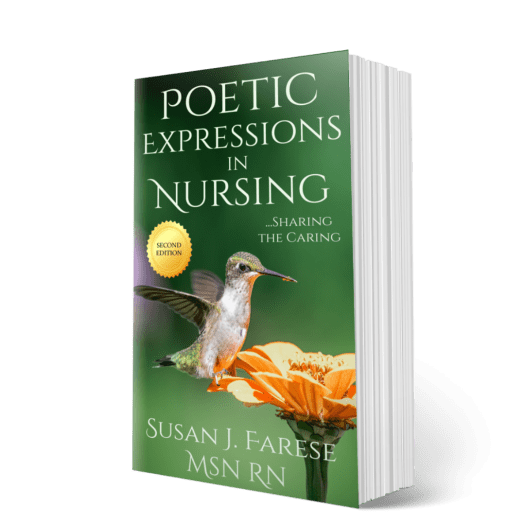 https://linktr.ee/SjfcommoWhich book of yours would you call your favorite child?
https://linktr.ee/SjfcommoWhich book of yours would you call your favorite child?Poetic Expressions in Nursing: Sharing The Caring
What inspired you to write this book?The pandemic compelled me to publish a 2nd edition of my book due to the stress, anxiety, and depression that nurses were enduring, as well as others experiencing the pandemic and its effect all over the world. I chose to celebrate nursing and inspire others through the creative art of poetry.
 https://theauthorsporch.com/home/break-out-of-your-skin/What are you usually found doing when you’re not writing?
https://theauthorsporch.com/home/break-out-of-your-skin/What are you usually found doing when you’re not writing?Hiking or strolling in nature, snapping nature photography photos, spending time with family/friends, and watching reality TV!
What does your writing space look like?Anywhere I am inspired! My office desk, on the couch w/laptop, or in nature at lagoons or the ocean with my phone notes!
 https://theauthorsporch.com/the-authors-porch-magazine/If you wrote your autobiography, what would you name it?
https://theauthorsporch.com/the-authors-porch-magazine/If you wrote your autobiography, what would you name it? “The Creative Reinvention Maven“
How long did it take to write your novel, and what was your process?It took several months-both in 1991 for the debut & 1993 versions and also for the 2nd edition in 2021.
 https://theauthorsporch.com/home/promotional-package/Favorite reads?
https://theauthorsporch.com/home/promotional-package/Favorite reads?Biographies and memoirs.
Do you have any book recommendations?I am eclectic in my choices. Not sure if I want to recommend them individually, but I enjoy biographies, memoirs, and non-fiction.
What’s your next big project?Continue spreading creative inspirations and stress management with Haiku by teaching workshops to nurses and the general public. Gearing up for a county wide contract to teach Haiku at local county libraries in San Diego. Please reach out to me and let me know if I can make an impact on nurse groups/healthcare organizations with Haiku workshops!
Do you have any advice for aspiring authors?Don’t be too tough on yourself but remember to make a plan to market your work early enough (or hire a publicist)! Use the platform(s) that best fit your genre/topic etc.
Follow Susan:SJF Author Page
‘Capturing Your Creativity With Haiku’ Workshops (Live/Zoom)
Want to be on our blog? It’s easy. Sign up now.
You can check out our magazine or write an article, we publish quarterly on Amazon, and it’s free for non-advertisers.

The post Author Interview – Susan J. Farese appeared first on .
June 21, 2023
Author Interview – Bruce Neckels
Bruce is a homebody, strange since he’s been a Theatre-Film-Television actor/TV writer for most of his life. Loves his wife, cooking, gardening, and good wine. We enjoyed having this Author Interview – Bruce Neckels, for our blog. Check out this fantastic author and follow them for more amazing stories.
Award winning writer Bruce Neckels has 50 years of professional experience in the entertainment business. His acting credits in numerous film, television, and stage productions bring another level of creativity to his writing. He earned a Bachelor of Arts Degree from San Francisco State College, in Radio-Television Broadcasting, with a minor in Drama. His first break as a writer came in 1989, when he was hired by NBC.
 https://theauthorsporch.com/home/be-on-our-blog/
https://theauthorsporch.com/home/be-on-our-blog/Since then, he has scripted close to 600 episodes for television, earning four EMMY® nominations and winning the Writers Guild of America Award.
“Matter of Conscience” is his first book, which includes his intensely personal experiences with the Vietnam War and the price he paid for being against it, along with the rewards that followed.
 https://theauthorsporch.com/podcast/
https://theauthorsporch.com/podcast/Born August 10, 1944, in Dickinson, North Dakota, Bruce lived in Belfield, N.D., under the care of his Ukrainian grandmother for the first nine years of his life. His parents separated when he was two years old. At the age of nine, Bruce was sent to live with his father in Merced, California, where he lived for the next twelve years (more on Mom later).
There he attended public schools, which included earning an AA Degree from Merced College. In 1965, he moved to San Francisco, where he attended San Francisco State College. It was during this time that Bruce got caught up in the antiwar movement. After studying the history of Vietnam and paying close attention to what was currently happening in Vietnam, he refused induction into the service. Though he offered to do alternative service, he was sentenced to two years in a federal prison in 1971 but was paroled after one year.
 https://theauthorsporch.com/character-interview/
https://theauthorsporch.com/character-interview/Following his release, Bruce continued his acting career in San Francisco as a member of the Brebner Casting Agency (where he had been cast in his first movie role in Michelangelo Antonioni’s “Zabriskie Point” in 1969. just prior to his incarceration) However, his TV/Film career had to sit on the sidelines from September until May for the next two years. As a result of his incarceration, Bruce “qualified” to join the Barbwire Theatre, an acting company of ex-convicts performing in Rick Cluchey’s “THE CAGE,” a brutal play about the horror of prison life. “The Cage” was presented at colleges throughout the United States and Canada, including daytime classroom visitations and the play at night, followed by a Q&A session with the audience. Its’ purpose was to bring awareness of prison conditions and the need for prison reform. The play gained such notoriety that it was performed in the Great Hall of Justice in Washington D.C., and for the National FBI Convention on Crime, also in D.C.
After his stint with “The Cage,” Bruce re-joined the Brebner Agency, where he landed roles in “Magnum Force,” “Dirty Mary, Crazy Larry,” several episodes of “Streets of San Francisco,” and John Korty’s “Farewell to Manzanar.” He also appeared in several national TV commercials. He found time to take on roles in several plays, including Ugo Betti’s “Crime On Goat Island,” which earned him the San Francisco Drama Critics Award for Best Actor of the Year in a Non-Equity Production. He also produced and starred in his own production of John Hopkins’s play “Find Your Way Home.”
 https://theauthorsporch.com/home/break-out-of-your-skin/
https://theauthorsporch.com/home/break-out-of-your-skin/Finally, in September of 1978, Bruce bid farewell to the “City by the Bay” and moved to Los Angeles, where he worked as an actor for the next ten years. But during this time, writing had begun to creep into his life. He wrote and submitted “spec” scripts to various TV series and, in 1989, was finally brought in to write NBC’s new ground-breaking daytime series, “Generations.” But after 18 months and a terrible time slot, the show was canceled. However, Bruce was scooped up by the revolving door of soap writers and immediately hired by “Santa Barbara.” which he wrote until the show finally came to an end.
From there, he spent six months in Toronto writing “Family Passions,” a joint venture series between Canada and Germany. Then back to Los Angeles, where he wrote a short series for MTV, “Spyder Games.” And from 1996-2002. he wrote “Days of Our Lives,” finally ending his soap writing career with “Young and the Restless” in 2017.
His book, “Matter of Conscience,” was published in December of 2019. He currently resides in Los Angeles, Calif., with his wife, Wendy. They’ve been married for 42 years. They have a daughter, Erin, age 30.
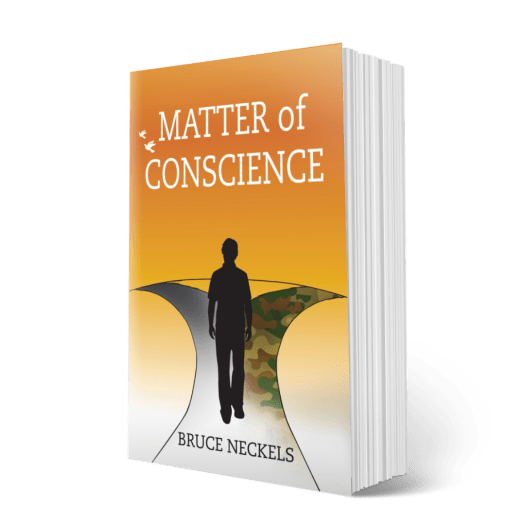 https://bruceneckles.comWhen did you start writing?
https://bruceneckles.comWhen did you start writing?I assume you mean professionally? I never even thought of writing a book or memoir until 2001. But before that, as soon as I moved to Los Angeles, I began writing treatments (long storylines, much more fleshed out than outlines). My wife was an assistant director on a sitcom called “Silver Spoons.” I’d seen enough episodes to understand the set-up and flow of the show, so I took a chance, wrote a spec script, and submitted it to the Executive Producer. He really liked it, but there were only three more episodes left for the season. Two scripts were already assigned and in re-writes; the third was also assigned to a staff writer. But the EP assured me that my script would kick off the next season.
However, the show’s star, Rick Schroder, didn’t want to do the show anymore, and the season was canceled. Even so, for me, it was a positive experience. I just kept writing and submitting until I finally got a call from Sally Sussman, creator, and head writer for a brand new soap opera called “Generations.” She asked me to write a spec script for her show. She liked what I wrote and hired me. And that sent me off on a 30-year journey writing daytime television.
 https://theauthorsporch.com/the-authors-porch-magazine/What was it like growing up?
https://theauthorsporch.com/the-authors-porch-magazine/What was it like growing up?Poor. I grew up in Belfield, North Dakota, with my Ukrainian grandmother, who barely spoke English. My mother, a single mom at the time, was a high school English teacher, and the only job she could get was across the state, In Grand Forks. I saw her at Christmas, Easter, and during the summer. But she worked as a waitress during those summers to keep the money coming in, so I barely spent any time with her. She did the best she could. I loved her dearly, but my grandmother was my heart and soul.
How was your early life?Again, we were very poor. My father and mother divorced when I was two years old. Dad went off to California with me and his second wife, while my sister, Bonnie, stayed with my mother. Bonnie was fifteen months older than me. But one year later, they switched kids. My guess is that Dad’s new wife got tired of little “Brucie” real fast and would rather have an older stepdaughter. That left me without a male influence for the next seven years. I didn’t meet my father until I went to live with him. By that time, he was into his third marriage, so I found myself living with strangers, which included my sister Bonnie and two step-sisters.
 https://theauthorsporch.com/home/promotional-package/
https://theauthorsporch.com/home/promotional-package/There was always so much tension within the family, not because of my father. He was a very kind, gentle man. But wife/step-mom #3 made it a living hell with her mood swings. I could have gone to live with my real mother at any time, but the truth is, I felt so sorry for my father that I didn’t have the heart to leave.
On the upside, I had wonderful friends around the neighborhood whose parents became my surrogate parents and made life bearable. I ended up doing very well during my high school years: I was very popular. First-chair drummer in our high school band; Student Body President; I played varsity basketball and varsity golf. By the time I started junior college, my dad and wife # 3 divorced. Too little, too late. But looking back at those tough years, It’s where I should’ve been. Footnote: My dad’s 4th wife was an absolute treasure! Oh, what could’ve been!
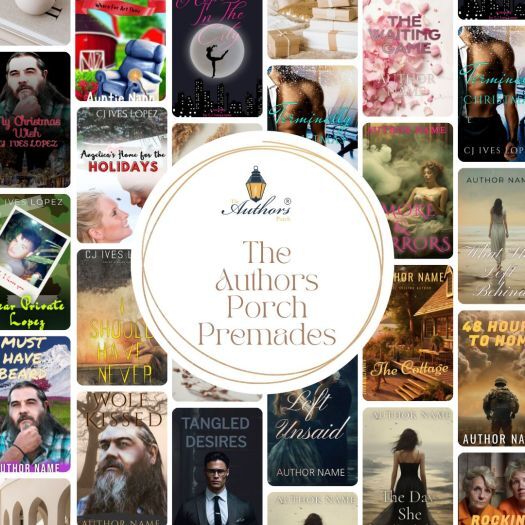 https://theauthorsporch.com/services/premade/What has been the biggest influence in your career?
https://theauthorsporch.com/services/premade/What has been the biggest influence in your career?For me, not “what” but “who.” In college: Dr. Arthur Hough, one of my Radio/TV professors at San Francisco State, taught me that an excuse isn’t worth a damn. Acting: Theater Director and dear friend, the late Dan Caldwell. Dan was my first drama teacher after college and Artistic Director for the very prestigious Marin Shakespeare Festival. He really wanted me to audition for a play he would be directing, “Comedy of Errors.” So, I got my audition piece together. But when I arrived at the audition site, it was jam-packed with not only actors waiting to audition but the general public who wanted to watch the auditions.
I lost my nerve and went home. Later that evening, he called, wanting to know why I didn’t show up. I told him I had but didn’t feel I was ready. But he felt I was and gave me a small role as a comic servant. That role and that play became the most important experience in my stage acting career. (“Matter of Conscience.” Chapter 12. Comedy of Errors – A Shakespearian Tragedy). Writing: In TV/Film, my experience as an actor was very important because, as a writer, I understood an actor’s problems and fears. Also, as an actor, I had a good ear for dialogue. The book: My Involvement in that particular time in history.
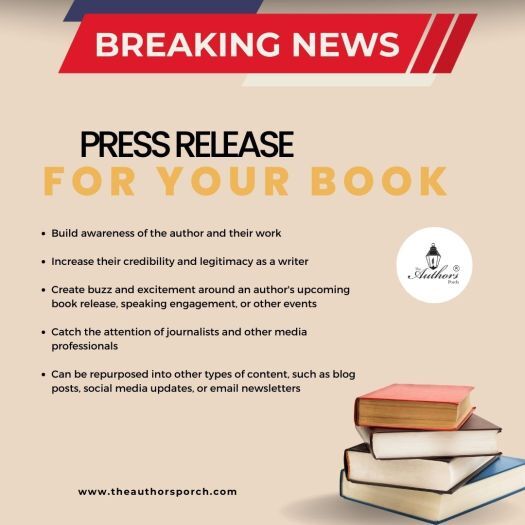 https://theauthorsporch.com/home/press-release/
https://theauthorsporch.com/home/press-release/Tell us about your newest release.
… and only release. “Matter of Conscience” It’s a memoir. A biography centered around my prison experience.
Which book of yours would you call your favorite child?“Matter of Conscience” is my only child I only hope that as I continue to raise it, I won’t spoil it.
 What inspired you to write this book?
What inspired you to write this book?Again, not “What,” but “Who.” My daughter, Erin, when she was nine years old. She walked into my office one night while I was working. She had to write a one-page English paper about someone in her life “who did something dangerous,” and did I know anyone? Like a school kid who knew the answer, I raised my arm, begging to be called upon. I then gave her a brief summary about going to prison for being against the war in Vietnam – not at all what she was expecting. I felt bad. I mean, she was only nine. I probably should have told her about the time I killed a rattlesnake. But ten minutes later, she came back into the room and said, “Dad, I think it’s really cool what you did.” That’s when I realized she really didn’t know a whole lot about me. The next day, I began writing “Matter of Conscience.”
What are you usually found doing when you’re not writing?Gardening, cooking, and since I’m a member of the Writers Guild of America, Screen Actors Guild/AFTRA – ergo, a voting member for the EMMYS, SAG/AFTRA, and WGA awards, I do have to watch a lot of movies/TV series in order to submit my nominations truthfully. Yes, it’s an honor system thing, but I want to be fair. There’s so much great writing and great acting from all over the world which needs to be recognized. Plus, it’s very educational. And since that means sitting on my butt a lot, I’m up at 4 a.m. in the morning, Mon. -Fri.; at the gym by 4:30, and home by 6 a.m., ready to start my day.
 What does your writing space look like?
What does your writing space look like?My wife, Wendy, and I have a nice spatial office. She has her desk and computer. I have mine. It’s a nicely lit room with a window that opens up to our backyard.
If you wrote your autobiography, what would you name it?“Matter of Conscience” is a memoir/biographical account of my experience about going to prison for being against the Vietnam War, which includes my past leading up to the decision I made. But a different name/title? Let’s see… “I Thought Growing Old Was Supposed To Take Longer.” Or: Bruce Neckels: Could I Have a Do-over, Please?
 How long did it take to write your novel, and what was your process?
How long did it take to write your novel, and what was your process?Twenty years. That’s because I was so busy writing scripts for Daytime television (Days of Our Lives, Young and the Restless, Santa Barbara, Spyder Games). I wrote one, oftentimes two scripts per week, which amounted to 75 – 150 pages of dialogue. In addition, I was parent president of each school my daughter attended (elementary, middle, and high school). I was President of the Studio City Chamber of Commerce for two years and sat on the Board of Directors for six years. So the last thing I wanted to do during my time off was write. I began writing the memoir during the spring of 2001 – but only as a memoir for my daughter. It was never meant to become a book. So my “process” was to write whenever I could.
Favorite reads?The Count of Monte Cristo( Dumas); All Quiet on the Western Front (Remarque);The Grapes of Wrath (Steinbeck); In Cold blood (Capote); 1984 (Orwell); Another Roadside Attraction (Tom Robbins); Slaughterhouse Five (Vonnegut Jr.); Catch-22 (Heller); Bury My Heart at Wounded Knee (Dee Brown)
 Do you have any book recommendations?
Do you have any book recommendations?All of the above for younger writers. I’m sure most writers over 50 have read them; Anything by Charles Dickens. Shakespeare – There isn’t a plot, theme, or human experience that he hasn’t written about. Grisham and Connelly books are fun. I’d rather someone recommend books to me.
What’s your next big project?As far as my next book? Not sure. But I’d like to set up a few speaking engagements, preferably colleges that include the 60s and Vietnam War History as part of their curriculum. I spoke two years in a row at Marymount Manhatten College n New York – a course titled “Reconstructing the 60s – and had an incredible time. The students couldn’t stop asking questions. And the letters I received from them following my visits were heart-warming. So I know there’s an audience out there.
 Do you have any advice for aspiring authors?
Do you have any advice for aspiring authors?Understand that I never aspired to be an author. I started out writing spec scripts for television, and when I finally began writing soaps, I was writing scripts from outlines. I wrote three television pilots before I even started “Matter of Conscience.” And those were invaluable to me because they taught me structure, both linear and non-linear, character development, and as I mentioned earlier, being an actor, I have a good ear for dialogue. So to try and answer your question… I’ve had several very talented friends with great stories to tell but never did because “I just don’t know where to start.”
Well, here’s what you do, I would tell them: Sit down in front of your computer or typewriter (Don’t laugh. My dear friend – a very famous romance novelist – has used a typewriter for the last fifty years). Create your document, or pull up whatever book-writing software you purchased, and go to that empty page, Don’t beat yourself up because you don’t have a title. Just write: “Title TBD” (To Be Determined). That way, you at least have words on your opening page. Now start. Open up that can of alphabet soup and toss it in the air, and see what words come out. And if it spells “crap,” that’s okay. Your first pass will NEVER be your last. And don’t be afraid to overwrite.
If you need to write an outline first – a few lines to establish a beginning, middle, or end, then do that. The first story I ever wrote was based on the ending. Next was figuring out just what was going to get me there! You may not be at your computer the moment you come up with a line of dialogue, a new scene, or that elusive title. So ALWAYS write your thoughts down as quickly as you can. You all have cell phones. Create a Notes app and store those thoughts. I can’t tell you how many times I’ve come up with an idea, a line of dialogue, a new moment – thinking it was so brilliant! So important! How could I possibly forget it? And then, two hours later, it was gone.
Again, don’t be afraid of that empty page. It’s like a Nordic Cold Plunge. The longer you stare down at that 39-degree water, the more likely you’ll lose your nerve and never jump in. Just go for it.
Follow Bruce:Want to be on our blog? It’s easy. Sign up now.
You can check out our magazine or write an article, we publish quarterly on Amazon, and it’s free for non-advertisers.

The post Author Interview – Bruce Neckels appeared first on .
June 20, 2023
Inspiration Through Imagery
Have you ever seen a picture, and it made you think of a story in your brain? That’s how most of my stories come to life, through Inspiration Through Imagery.
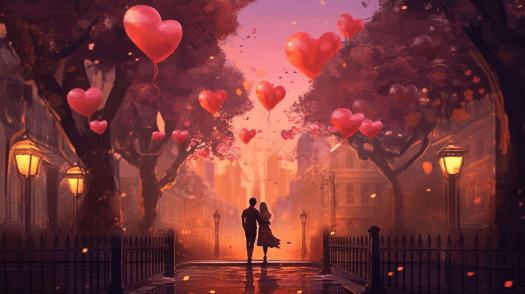
Creativity is a fundamental aspect of the human experience, allowing us to express ourselves, solve problems, and imagine new possibilities. While creativity can manifest in various forms, imagery is one powerful avenue for unlocking our creative potential. Through the use of visual and mental images, we can tap into a wellspring of inspiration and cultivate our creative abilities.
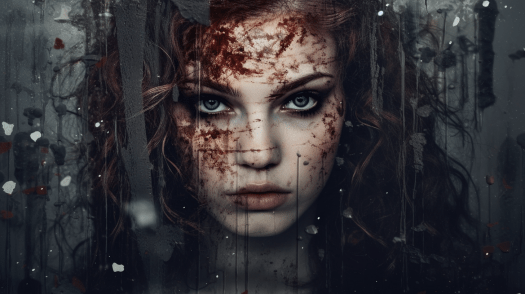
It’s helpful to scroll through various images while in a rut and allow the pictures to create a map of inspiration inside my brain.

In this exploration, I find my best ideas.
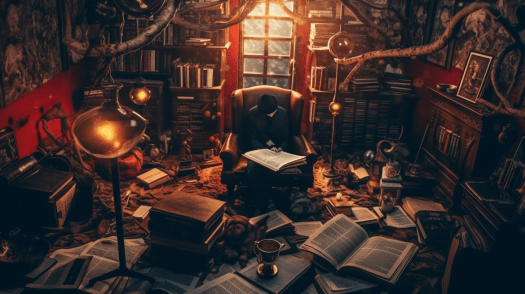
Imagery, both visual and mental, form the cornerstone of human imagination. It involves creating or recreating sensory experiences in our minds, allowing us to visualize and manipulate ideas, concepts, and memories. By engaging our senses, the imagery becomes a catalyst for unlocking our creativity. It ignites our imagination, activates different parts of our brains, and enables us to explore unique perspectives and solutions.

One practical technique for leveraging imagery in creativity is visualization. Visualization involves consciously creating detailed mental images of desired outcomes or ideas. Whether it’s envisioning a painting, designing a product, or crafting a story, visualization helps bridge the gap between imagination and reality. By vividly picturing our desired creative outcome, we can better understand its nuances, identify potential challenges, and generate innovative solutions.
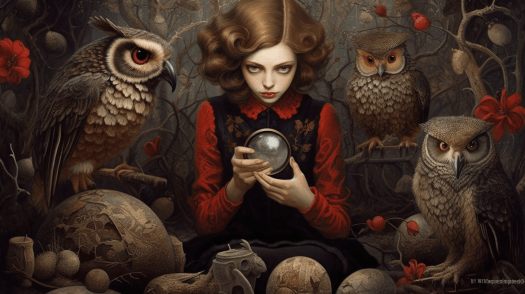
Have you heard of a mood board? They’re like the vision boards people make each year to guide them to accomplish their goals; however, mood boards are simply inspiration for a moment to inspire creativity. With these boards, you can add anything that creates emotion. Mood boards are visual collages of images, colors, textures, and other elements that evoke a particular mood or concept. They serve as a springboard for inspiration, enabling us to explore different visual aesthetics and themes.
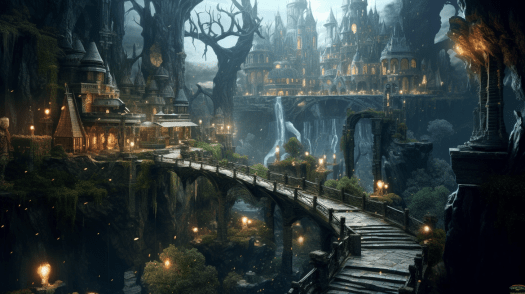
Creating a mood board can help us clarify our creative vision, identify patterns, and generate fresh ideas by juxtaposing different images and concepts.

Where are my people watchers? I remember the days of sitting at a picnic table sipping coffee while all the soldiers, airmen, marines, and sailors walked by the sidewalks of our camp in Afghanistan. I often created conversations and storylines of their interactions.
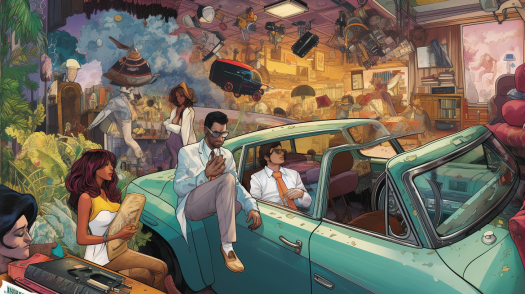
The act of observation is also an essential aspect of using imagery for creativity. By keenly observing our surroundings, we can tap into a rich source of inspiration. Whether it’s nature, people, architecture, or everyday objects, the world is brimming with visual stimuli waiting to be noticed. Engaging in mindful observation trains our minds to be more attuned to the subtleties of our environment, fostering a deep connection with our surroundings and providing a constant source of inspiration for creative endeavors.
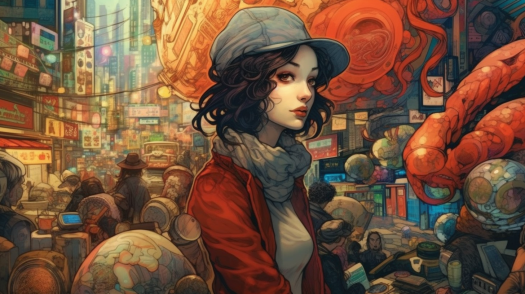
In addition to external imagery, internal imagery plays a crucial role in nurturing creativity. Mental imagery allows us to explore the depths of our thoughts, memories, and emotions. By tapping into our inner world, we can better understand ourselves, our experiences, and the stories we wish to share.
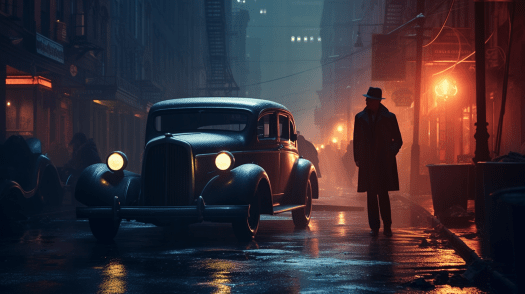
Learning how to be creative through imagery goes beyond individual artistic pursuits. It can also be applied to problem-solving, brainstorming, and innovation. Visualizing and manipulating ideas mentally allows us to approach challenges from new angles, consider alternative perspectives, and generate innovative solutions. By embracing imagery as a tool for creativity, we expand our capacity to think outside the box and embrace a more imaginative and expansive approach to life.

Moreover, the transformative impact of learning to be creative through imagery extends beyond personal growth. It can foster connections and communication among individuals, communities, and cultures. The universal language of imagery transcends linguistic and cultural barriers, enabling us to communicate complex ideas and emotions visually compellingly.
Through imagery, we can inspire others, evoke empathy, and promote understanding, forging connections and fostering a collective creative spirit.
Learning to be creative through imagery opens a world of possibilities.
Inspiration is all around you. Open your eyes and your senses, and be prepared to be inspired.
Want to be on our blog? It’s easy. Sign up now.
You can check out our magazine or write an article, we publish quarterly on Amazon, and it’s free for non-advertisers.

The post Inspiration Through Imagery appeared first on .

